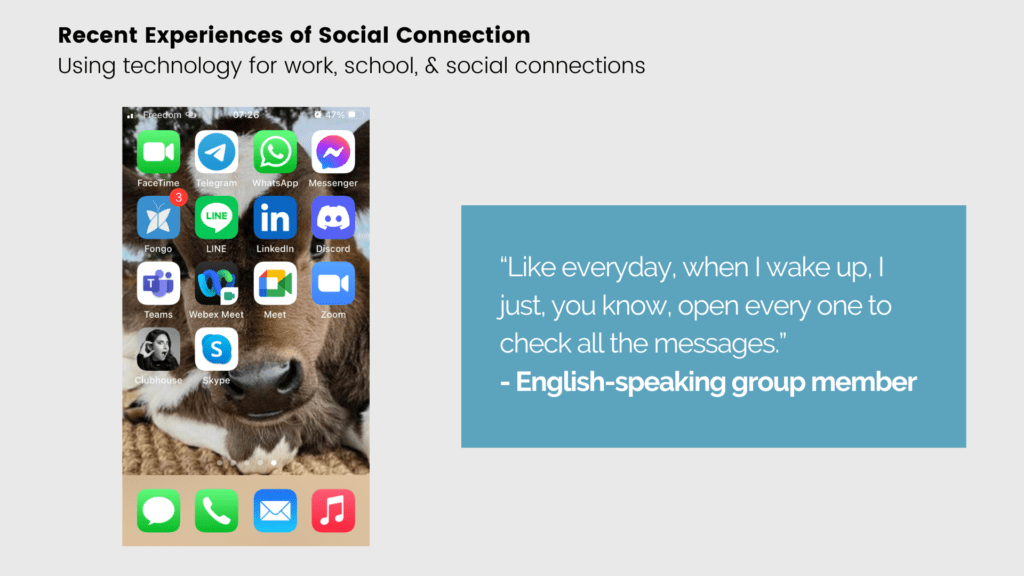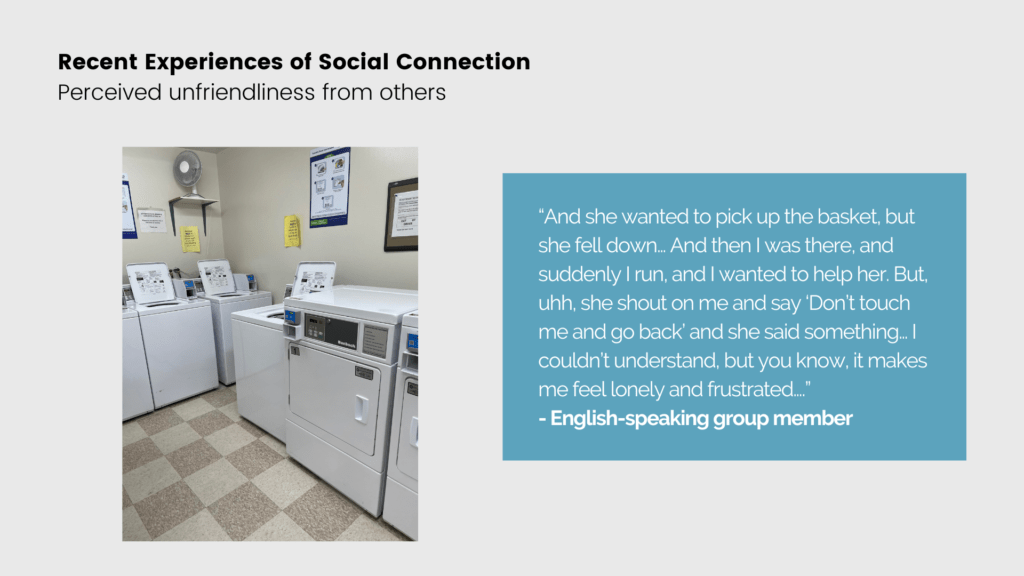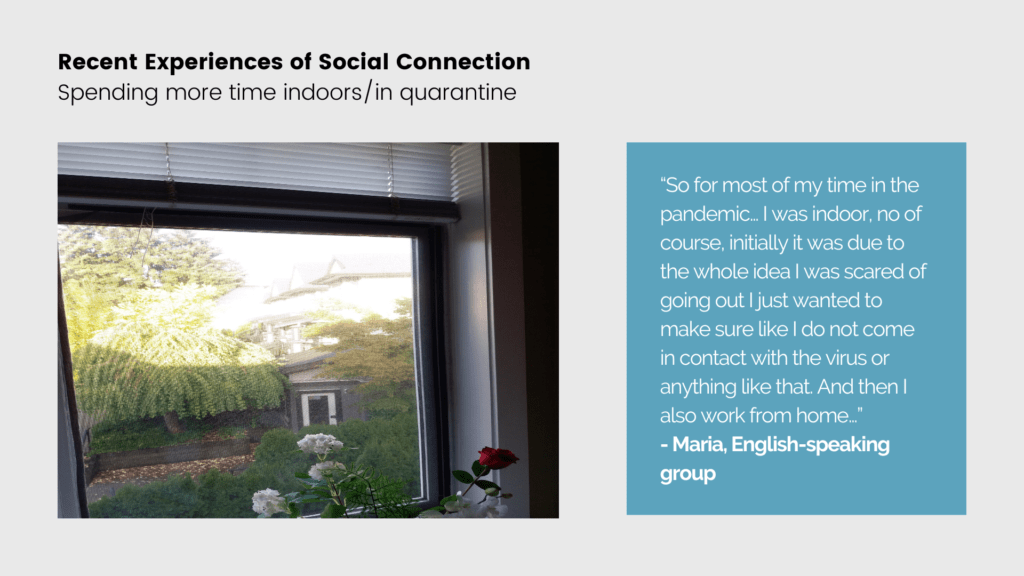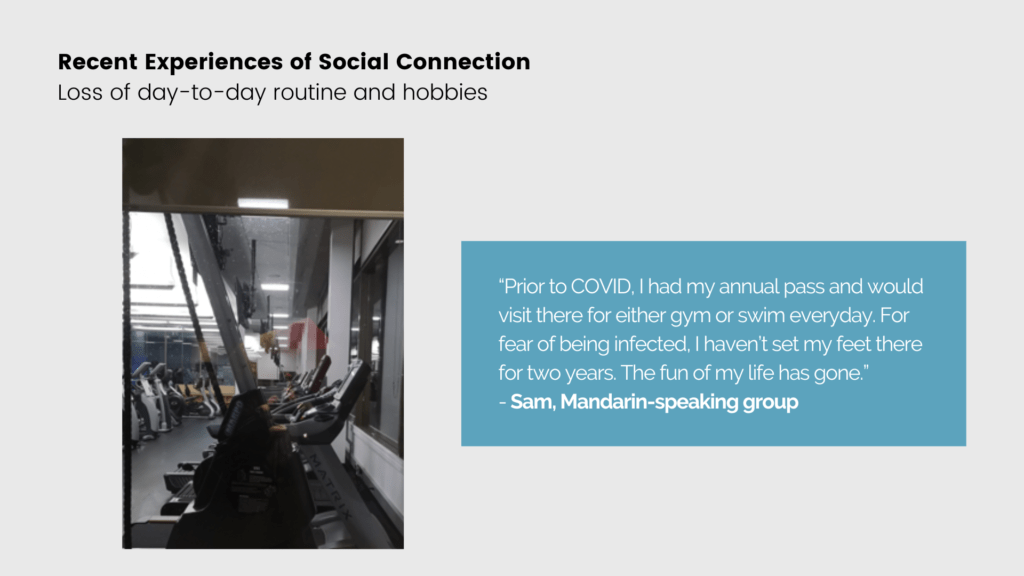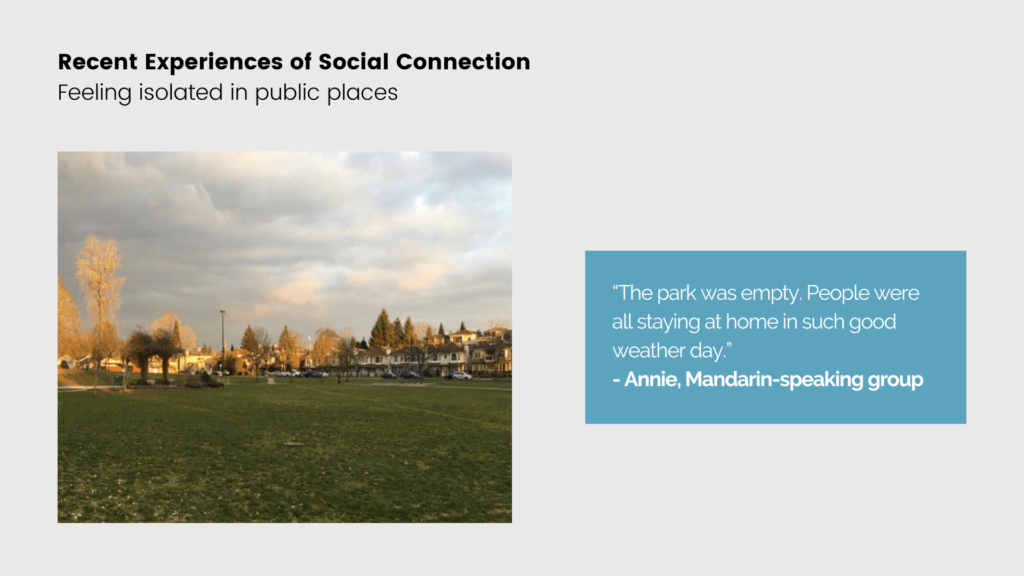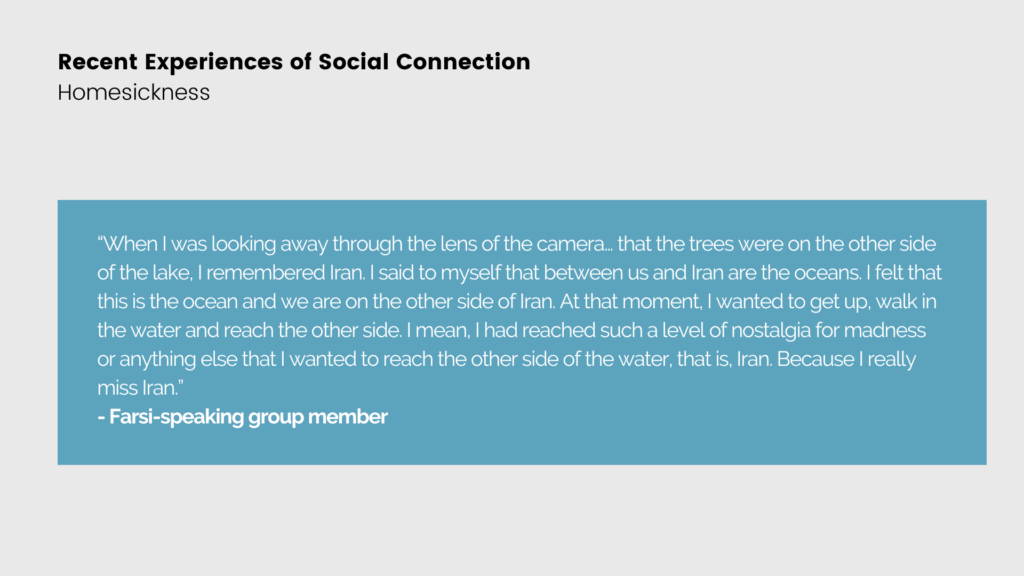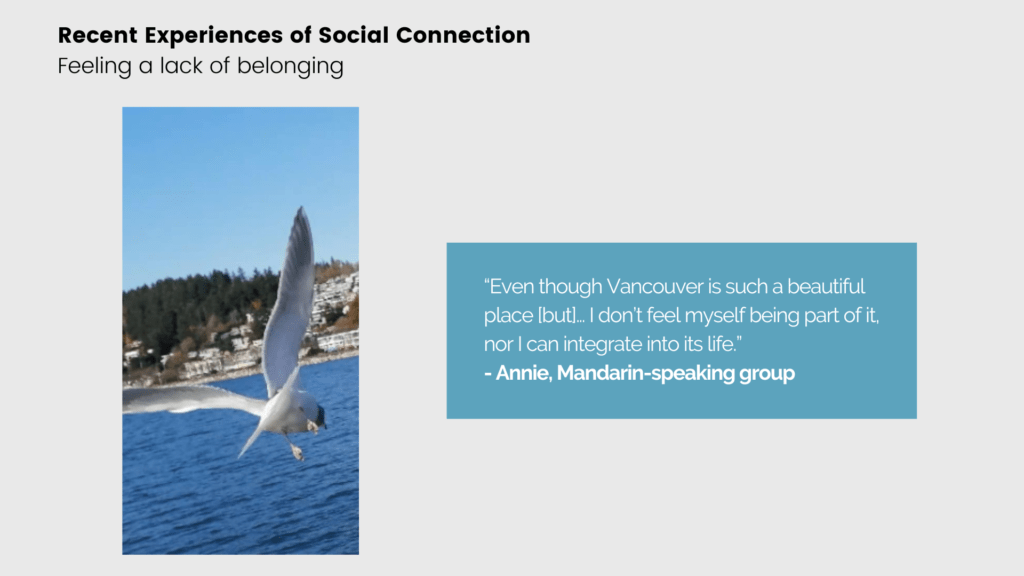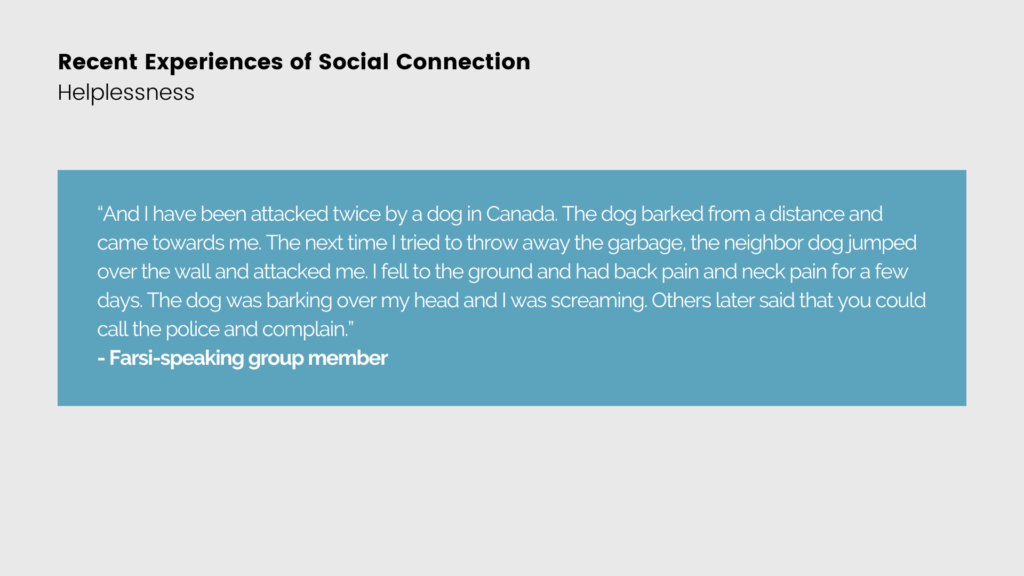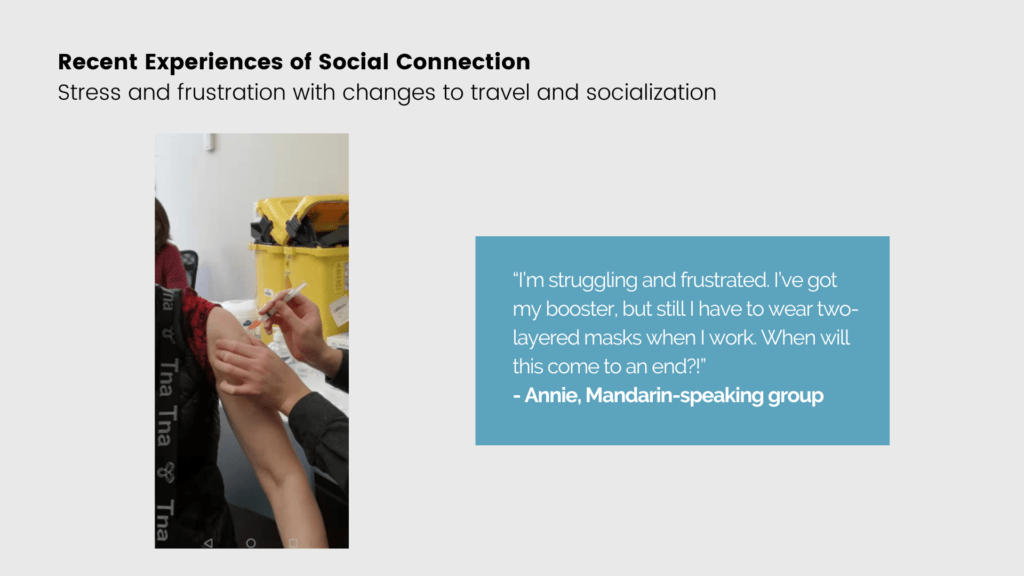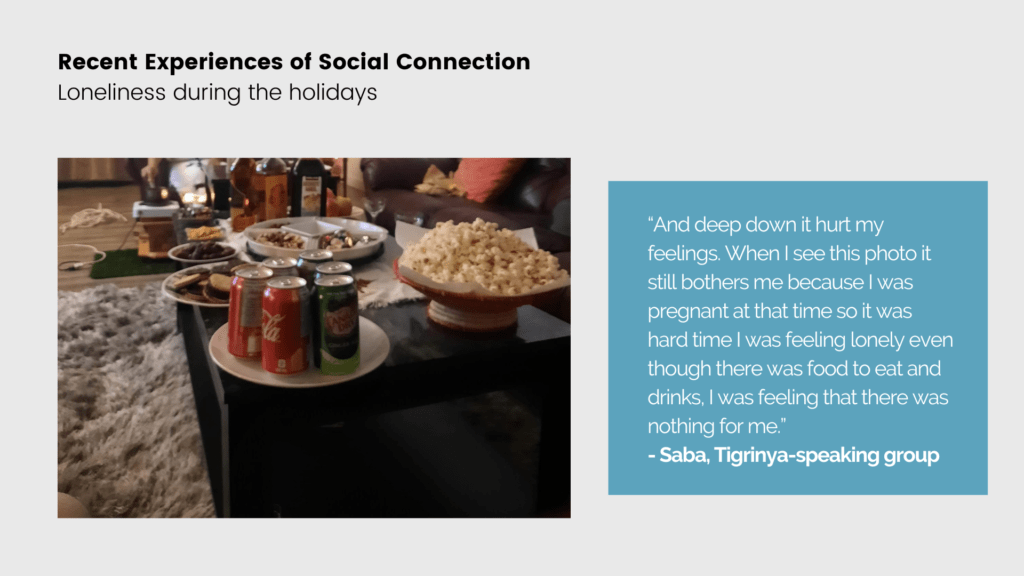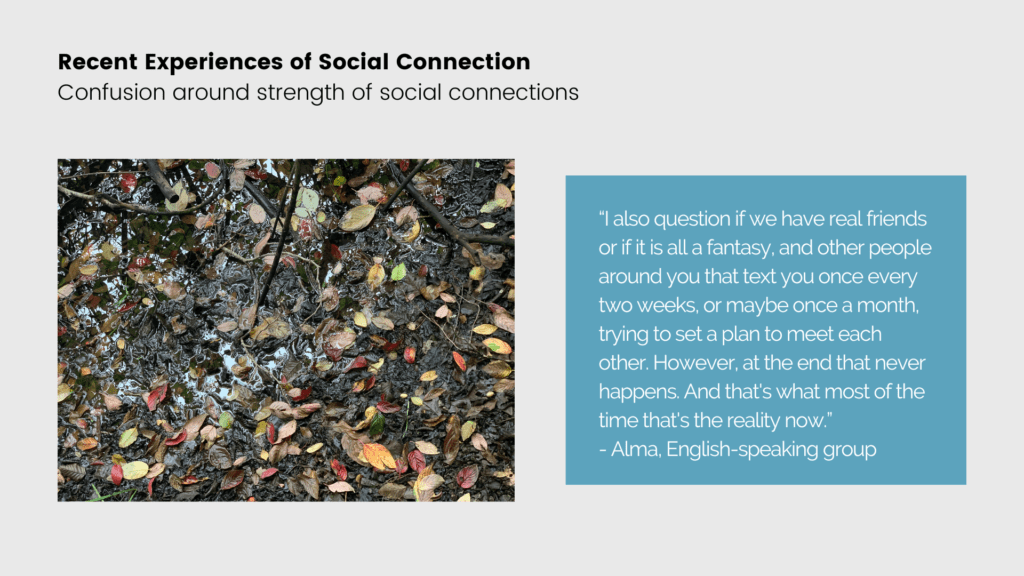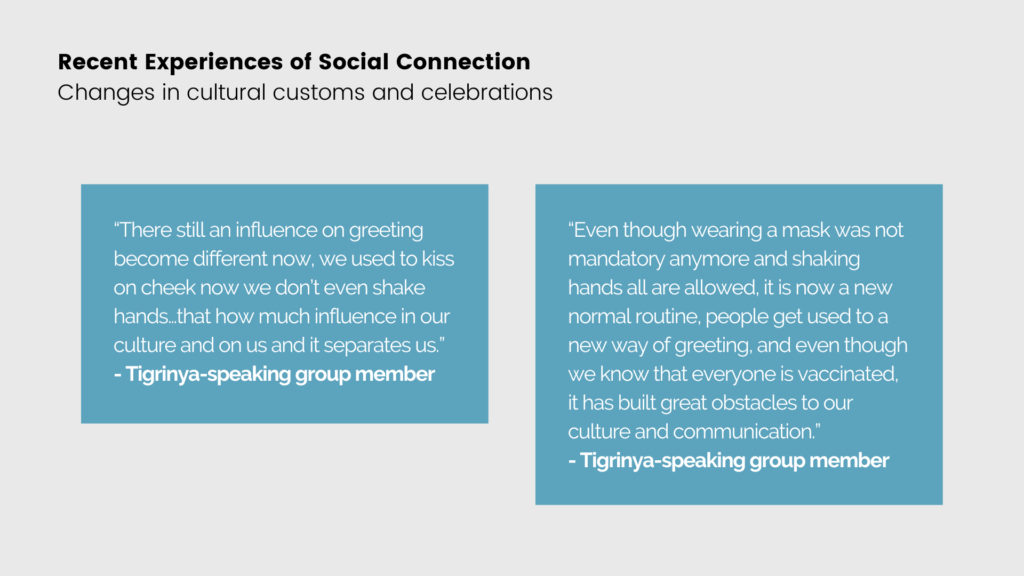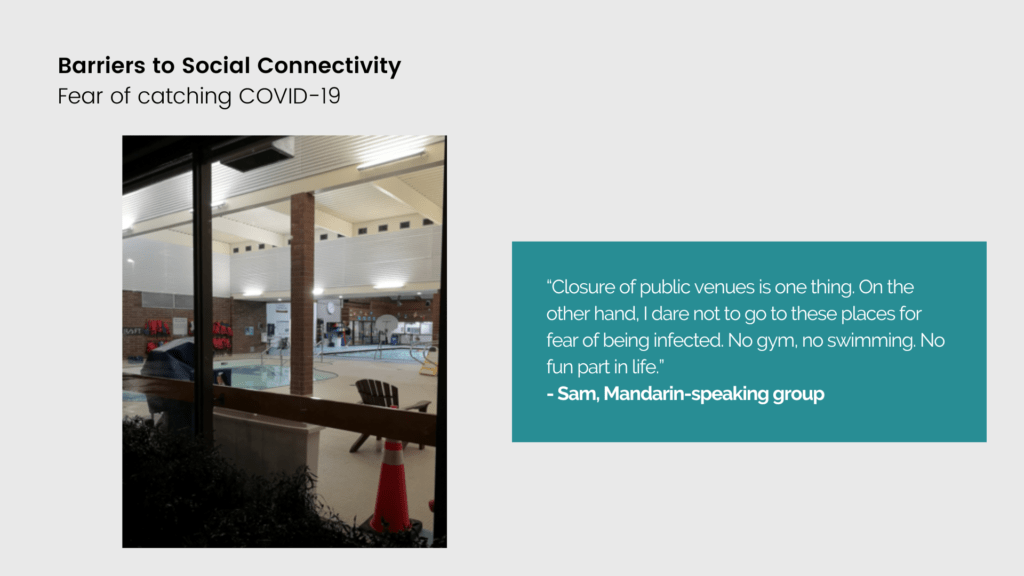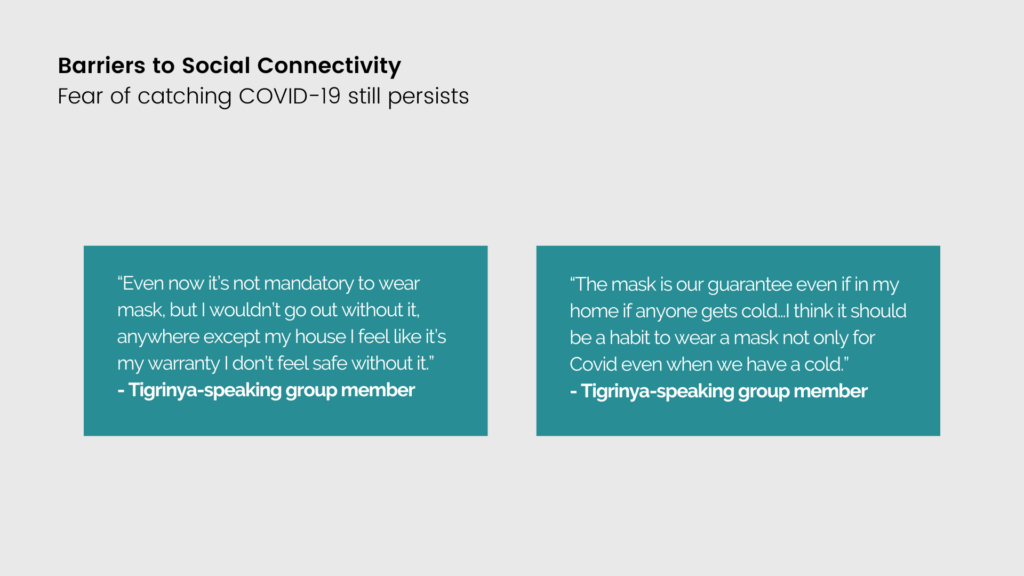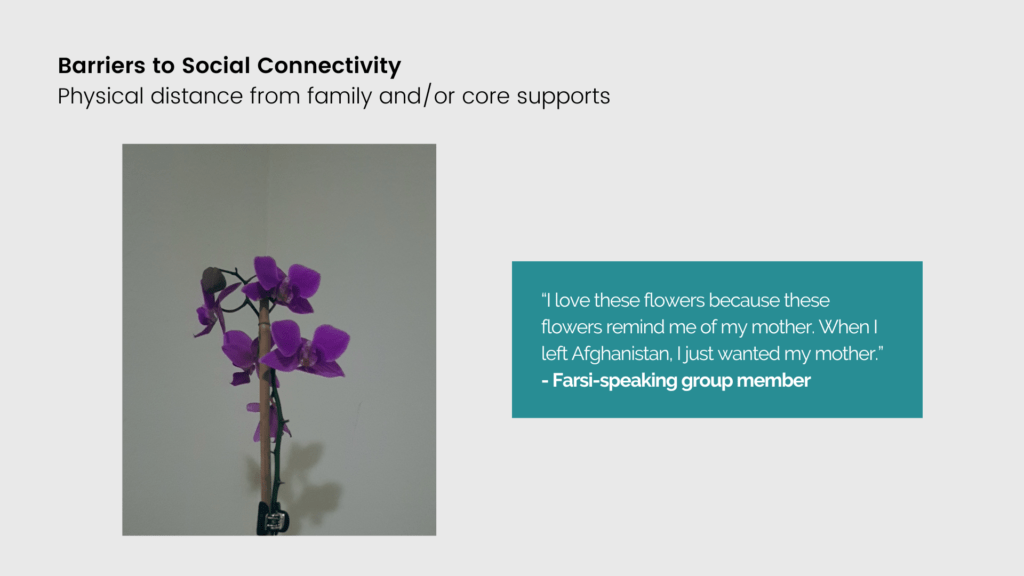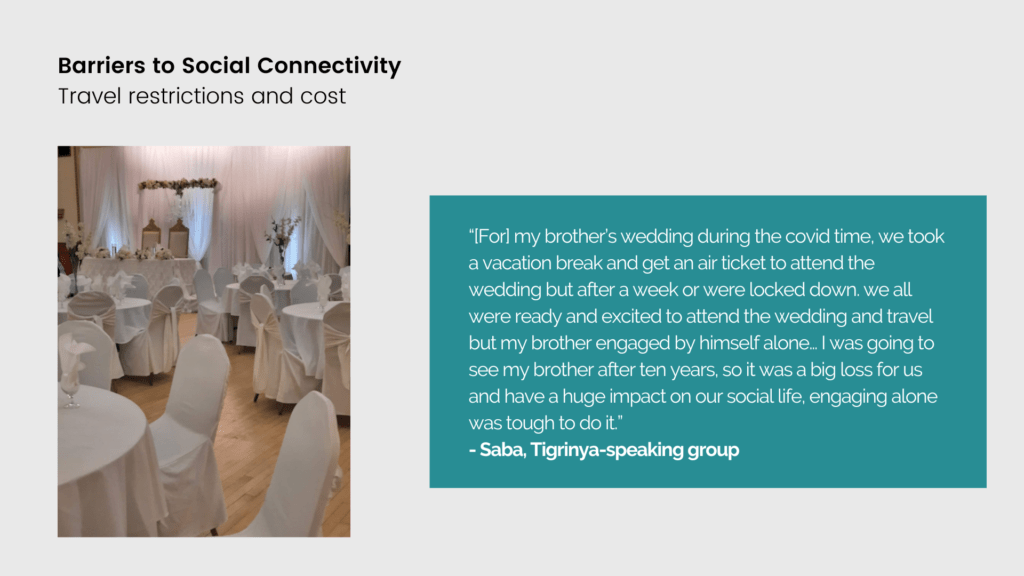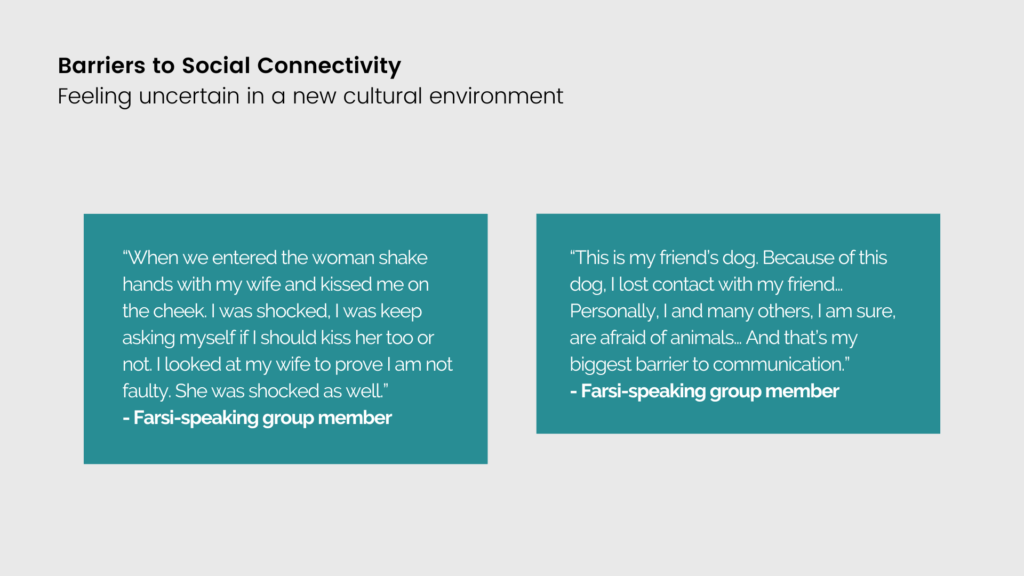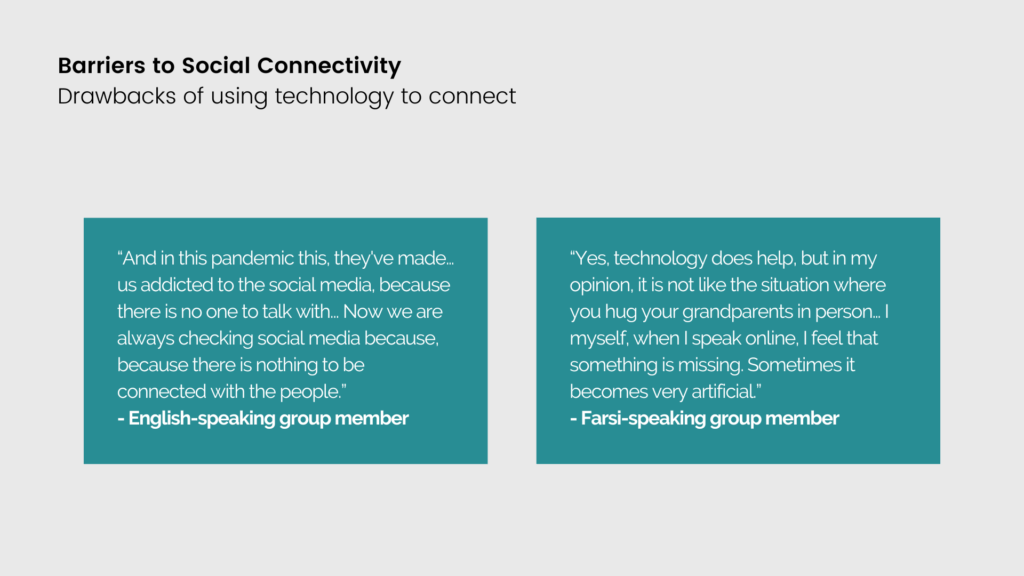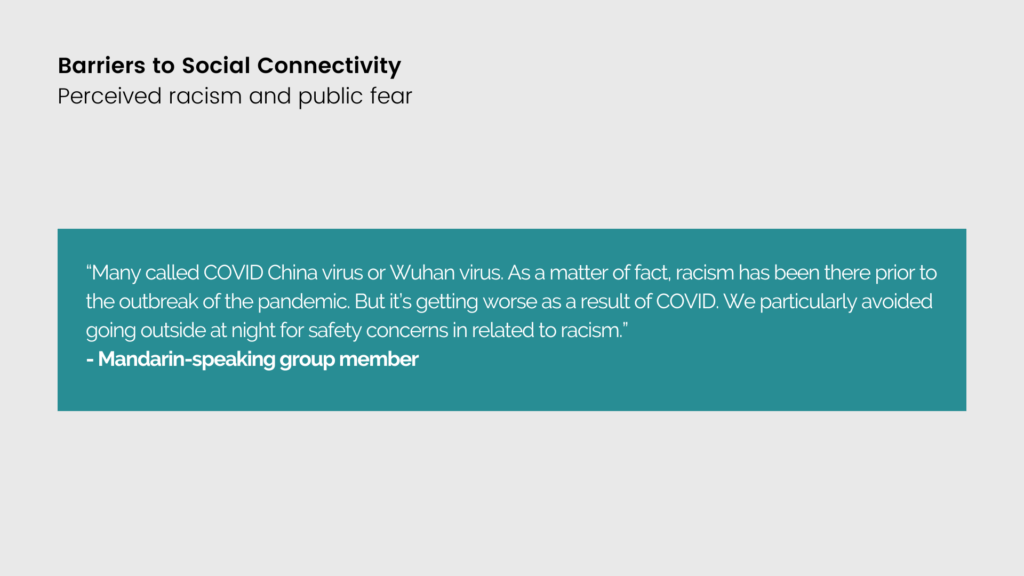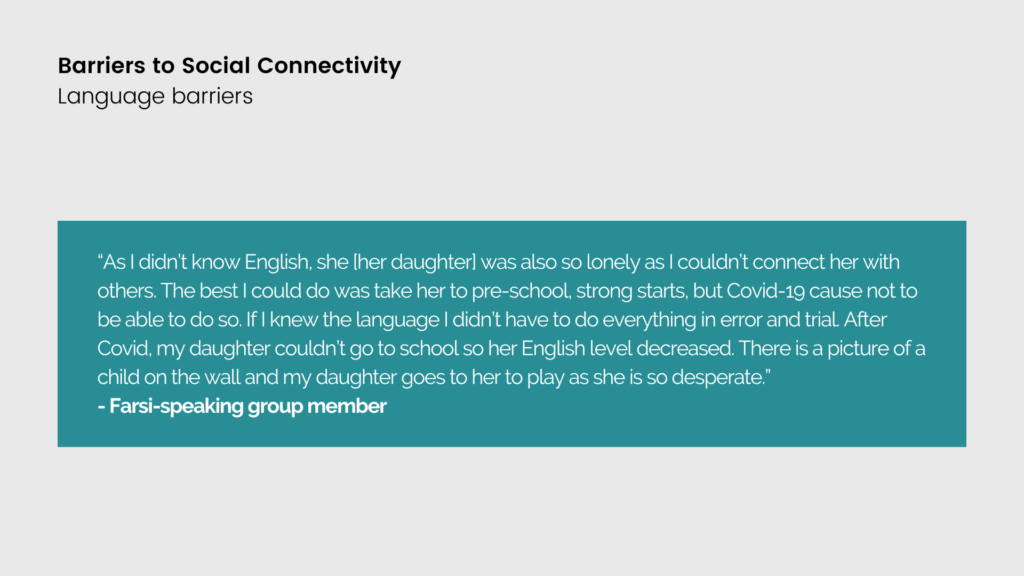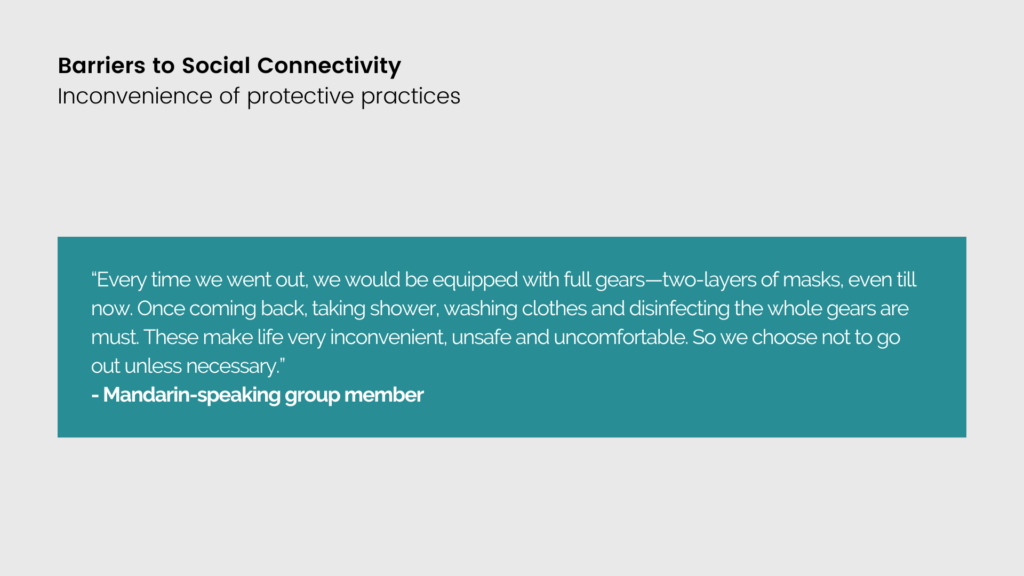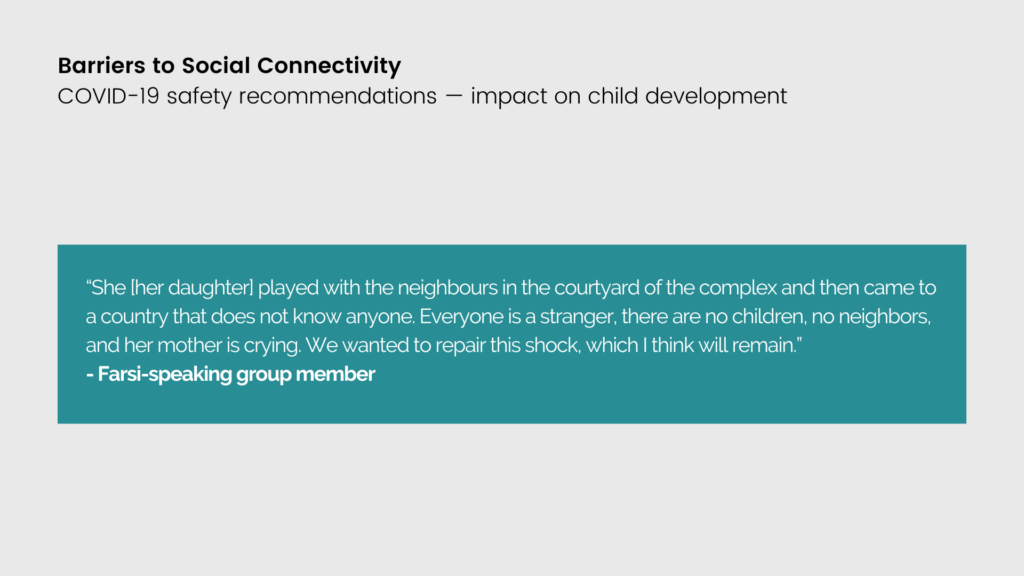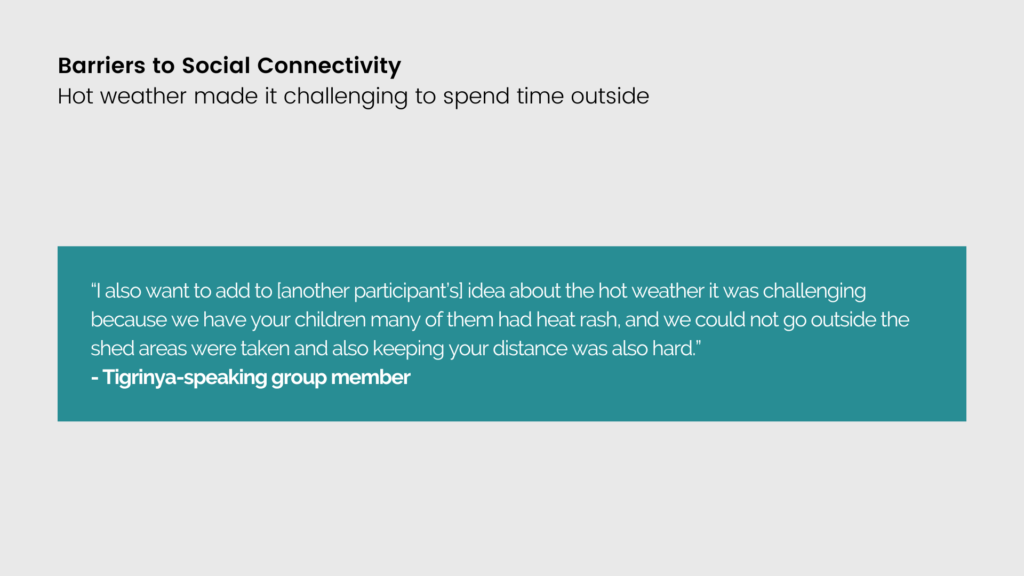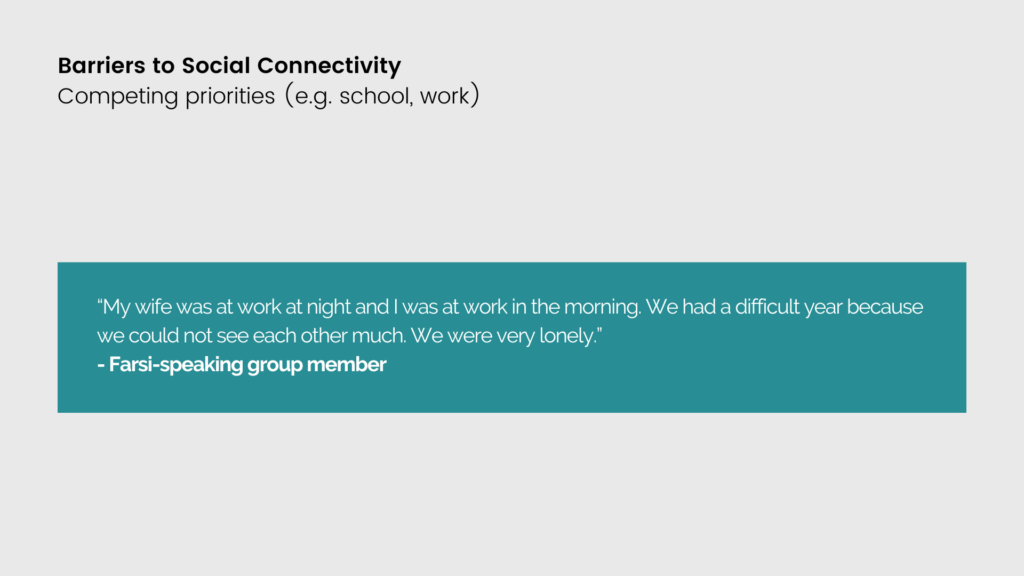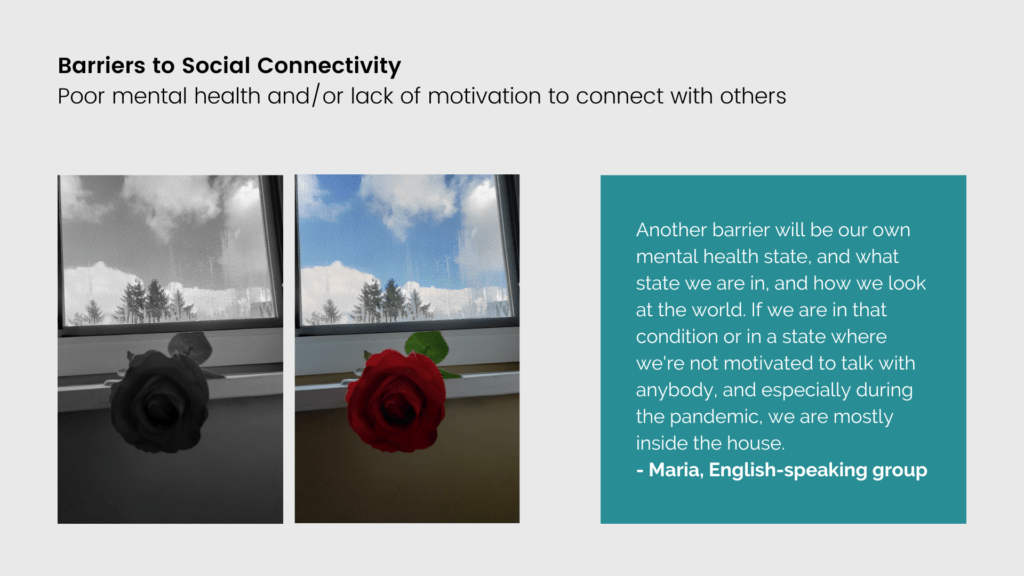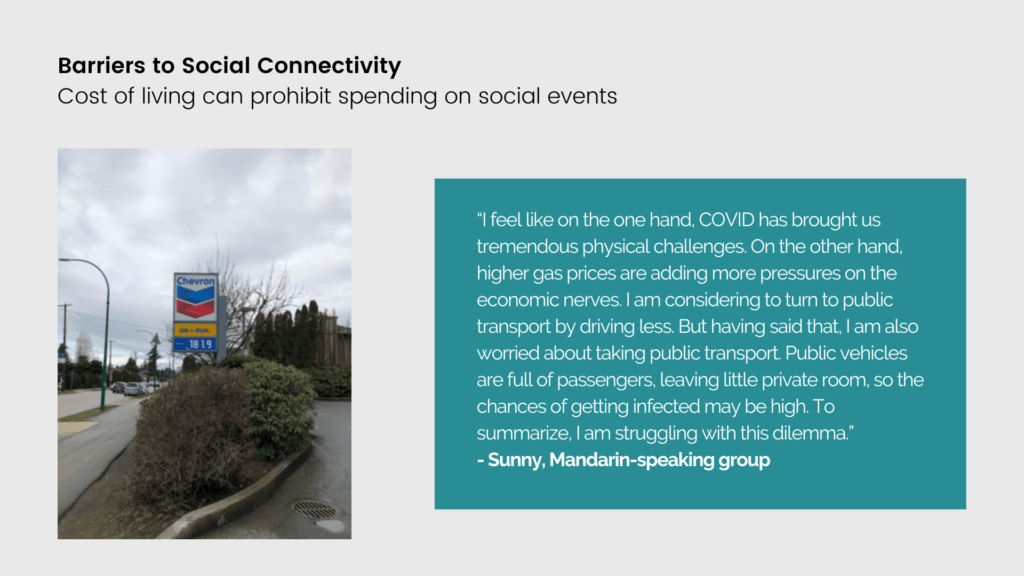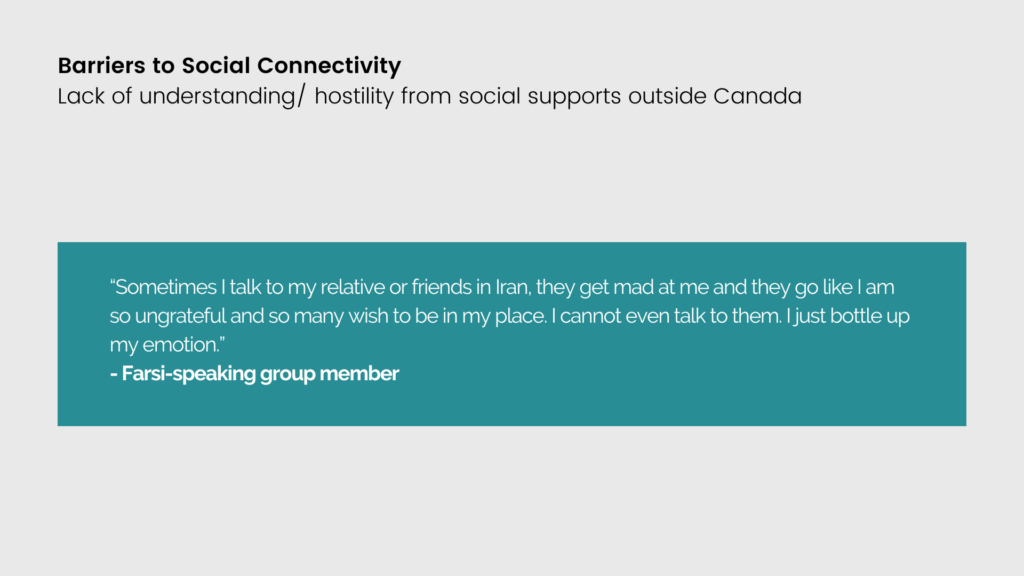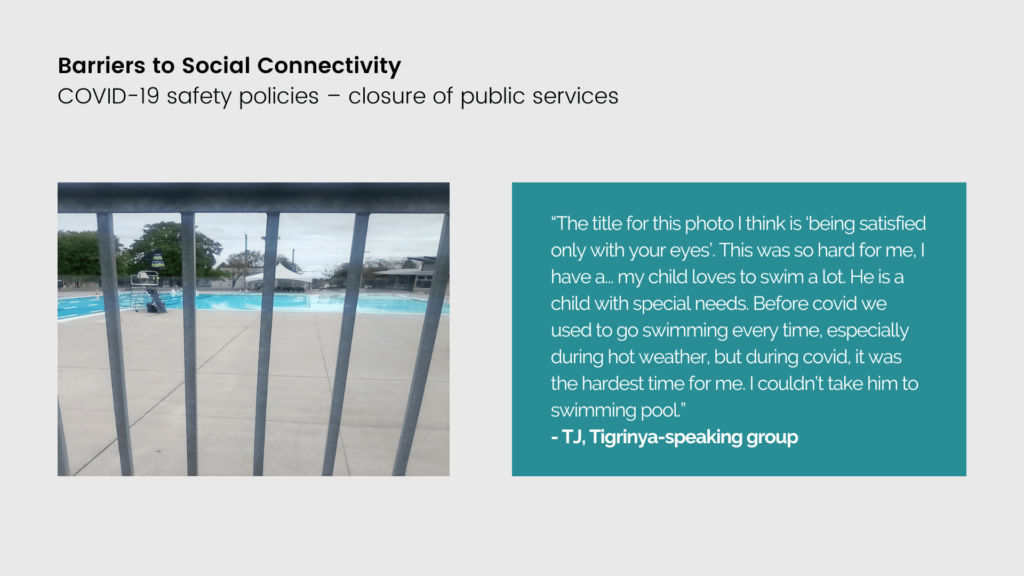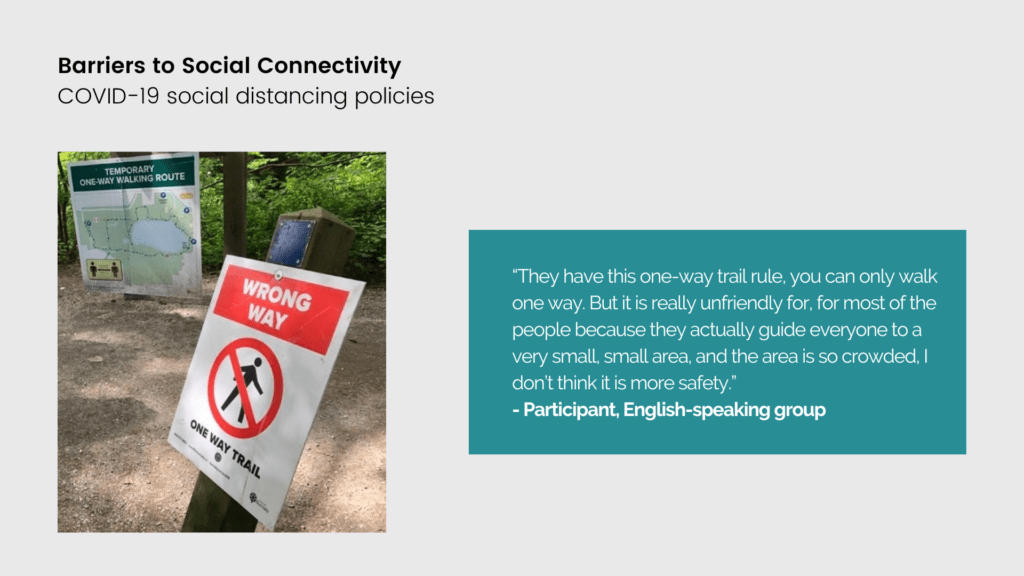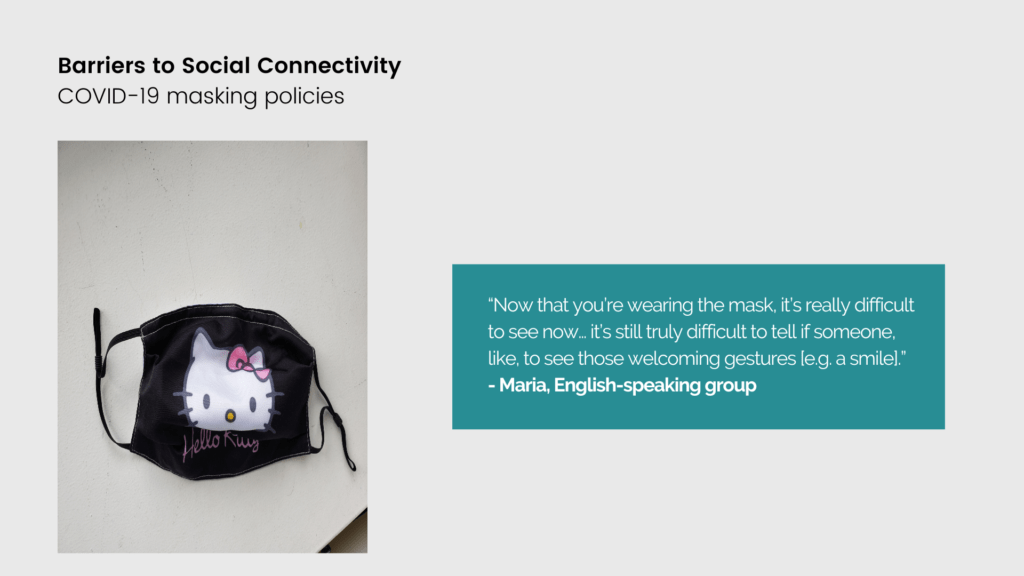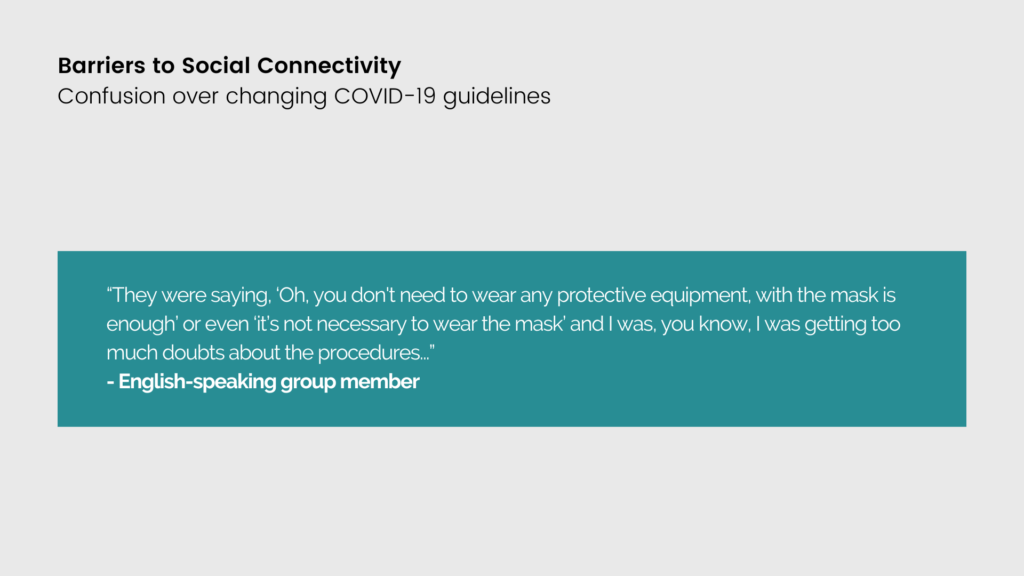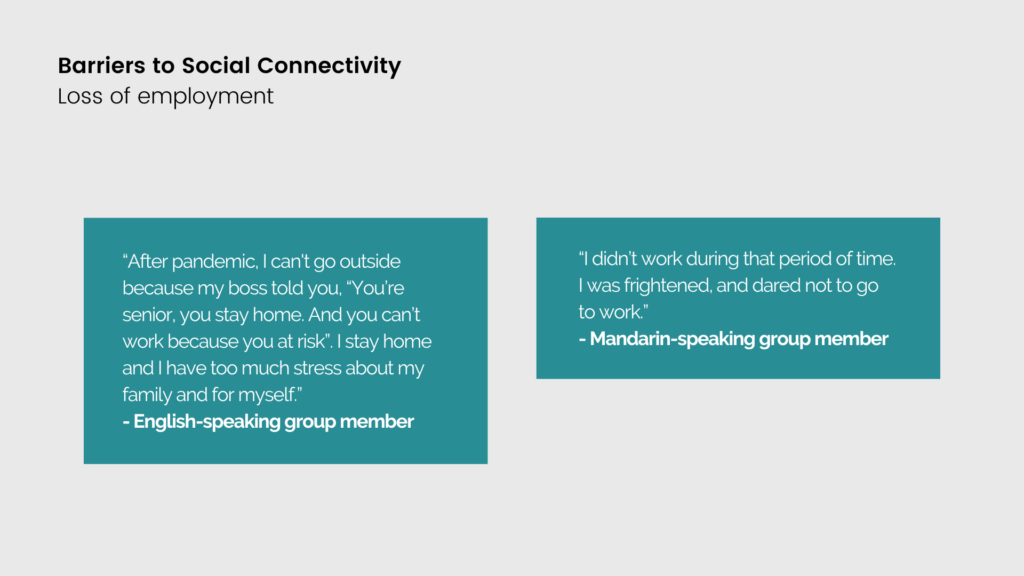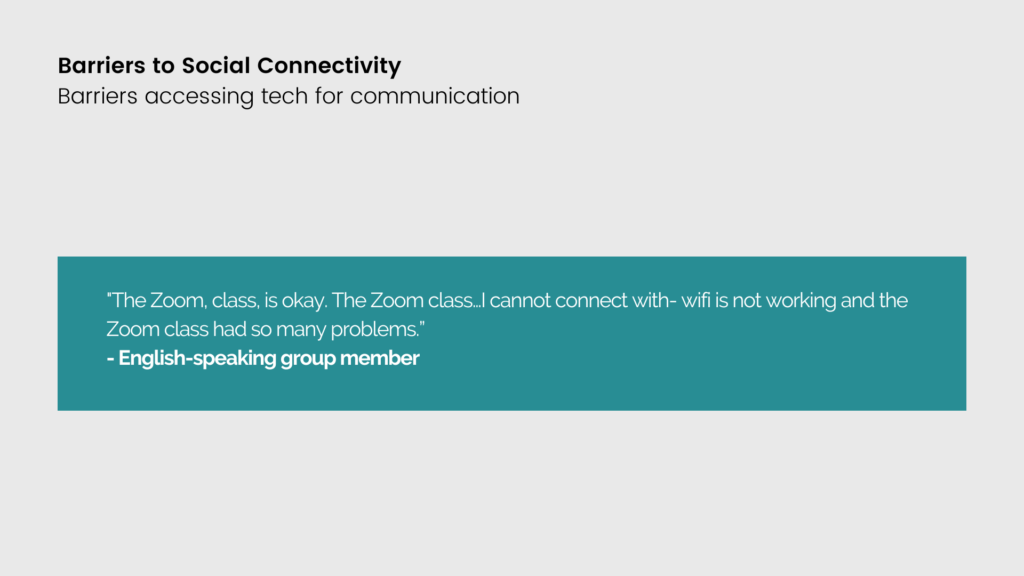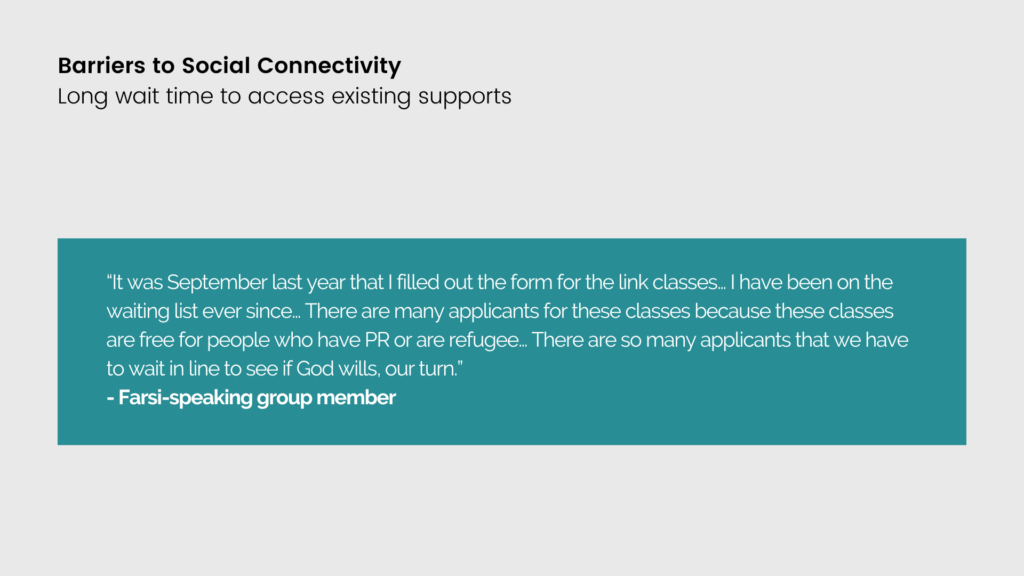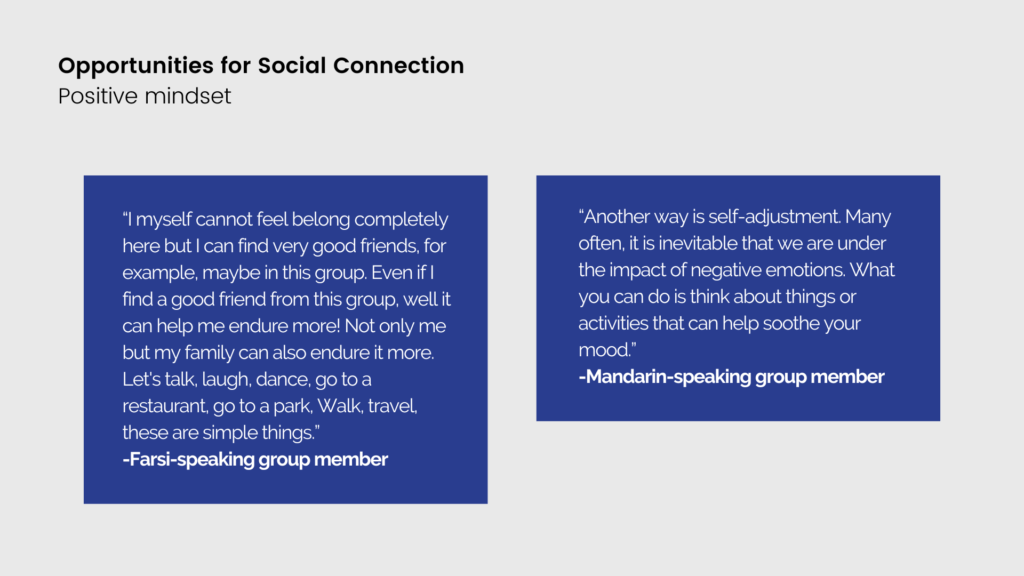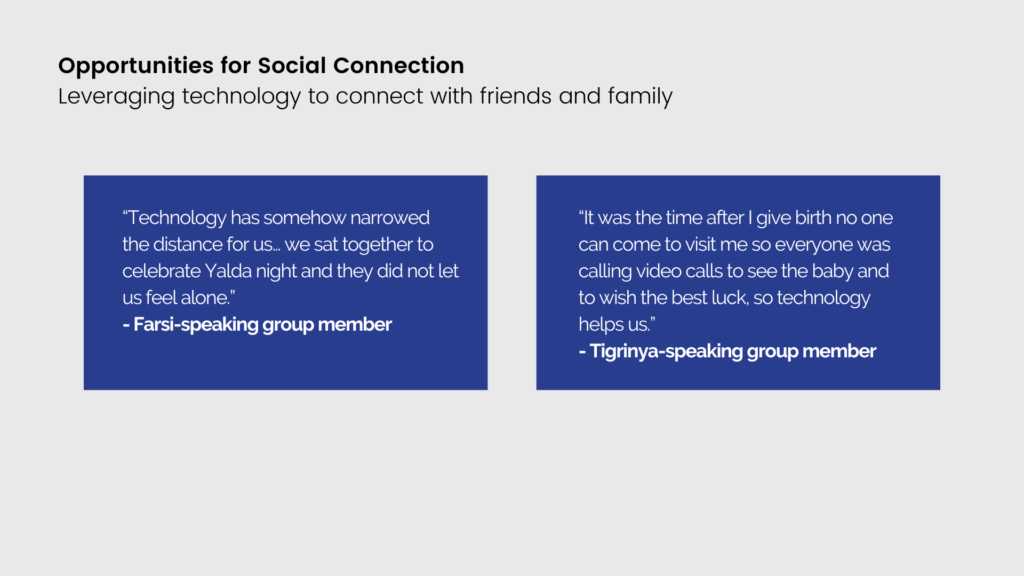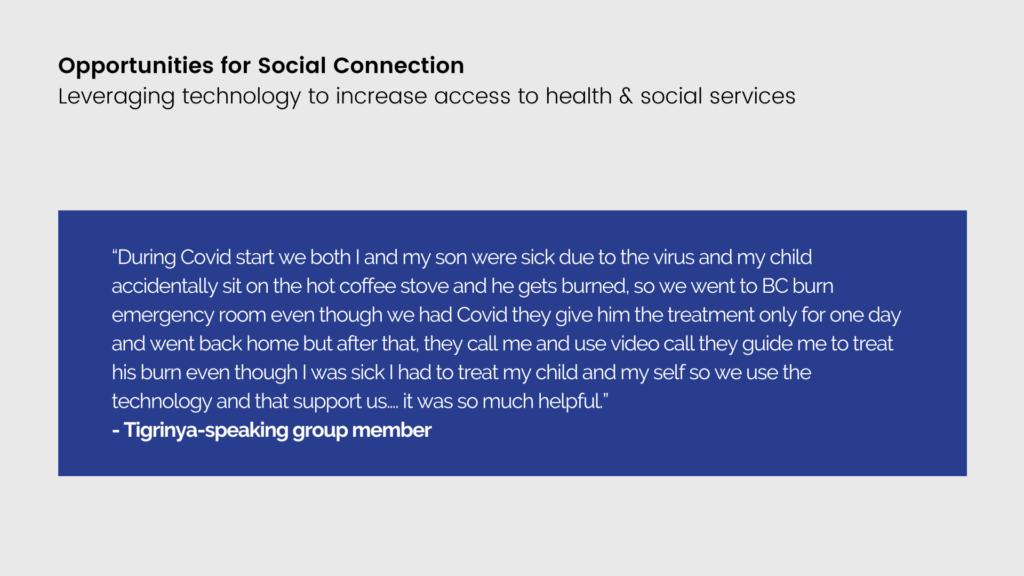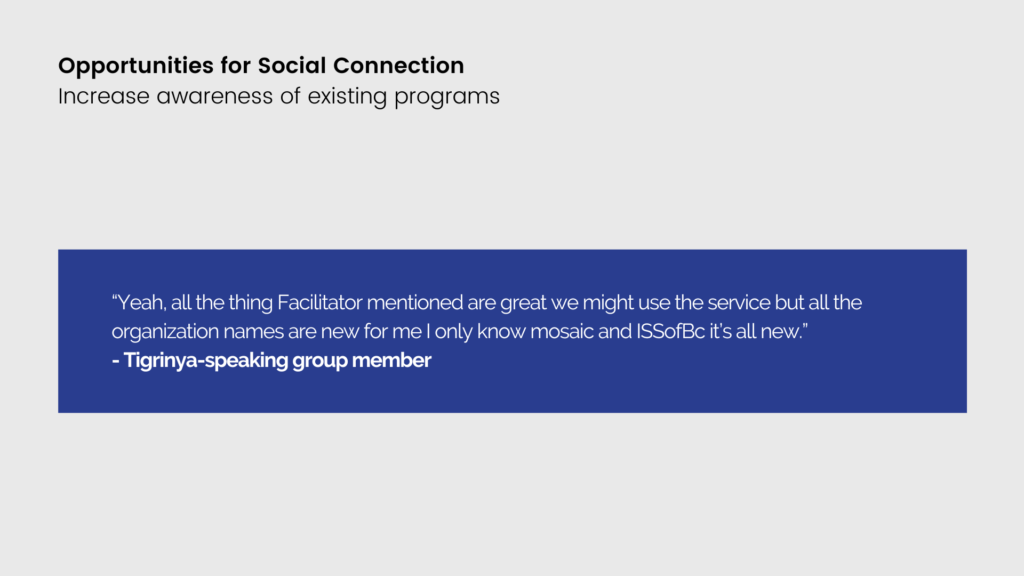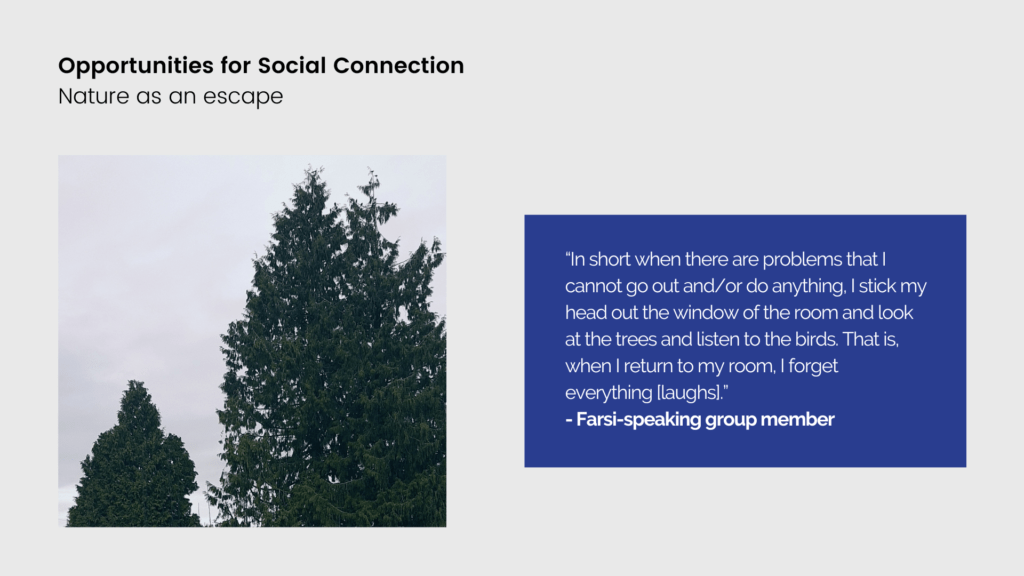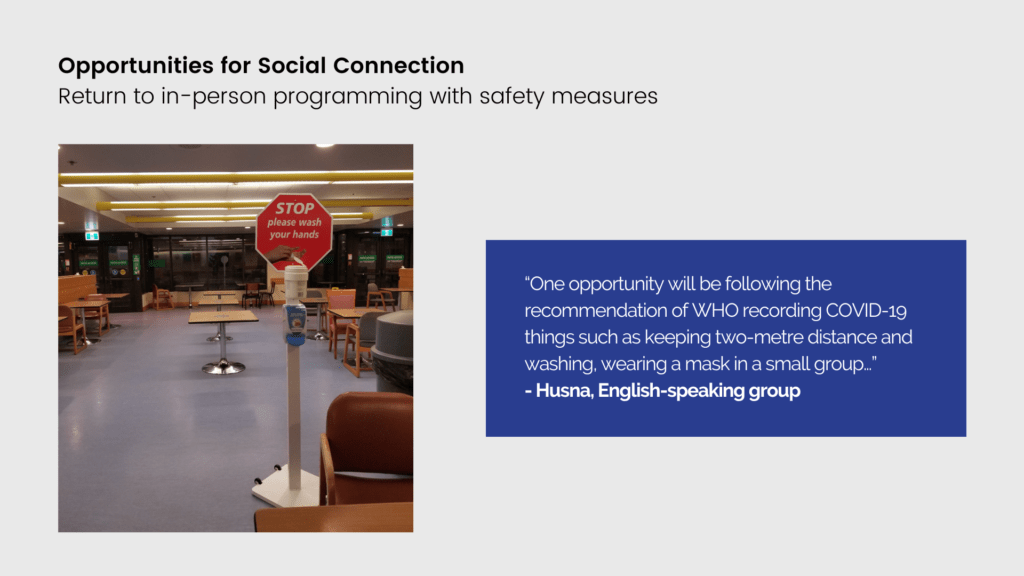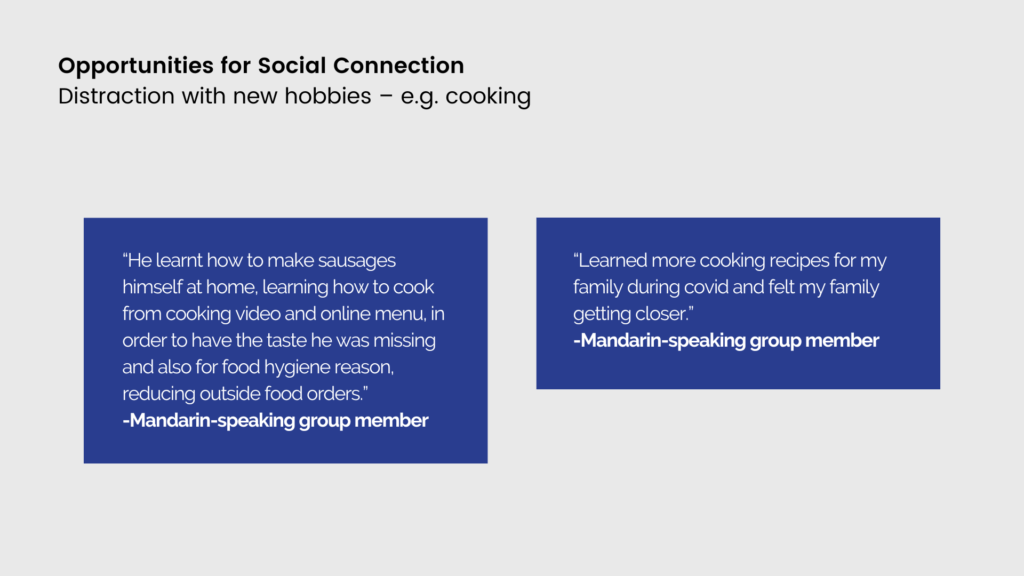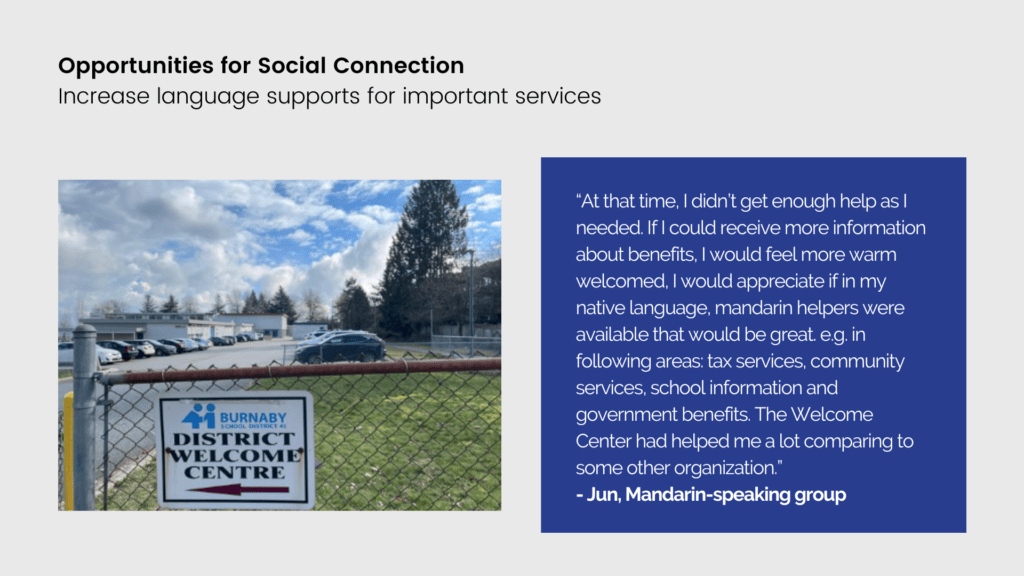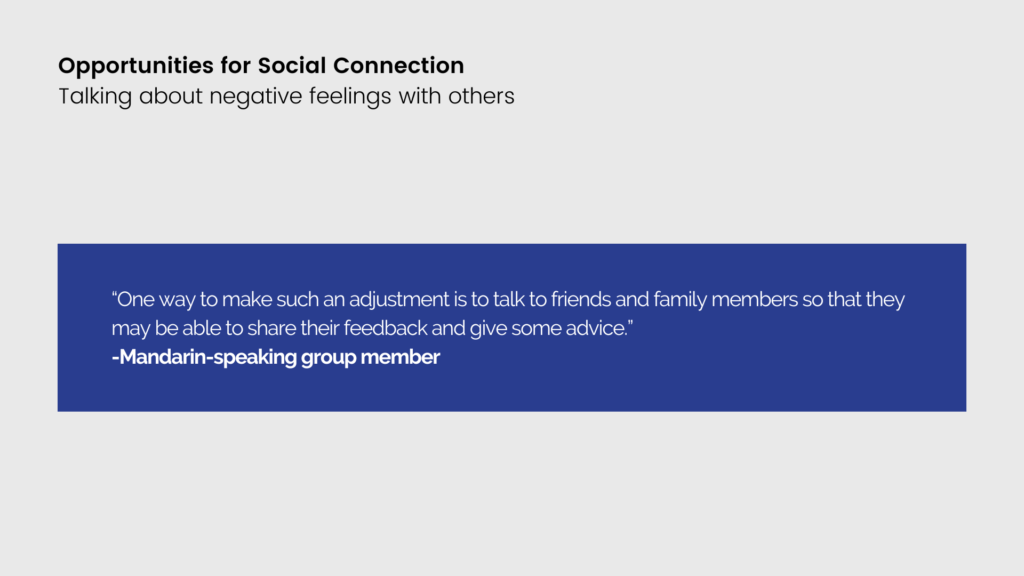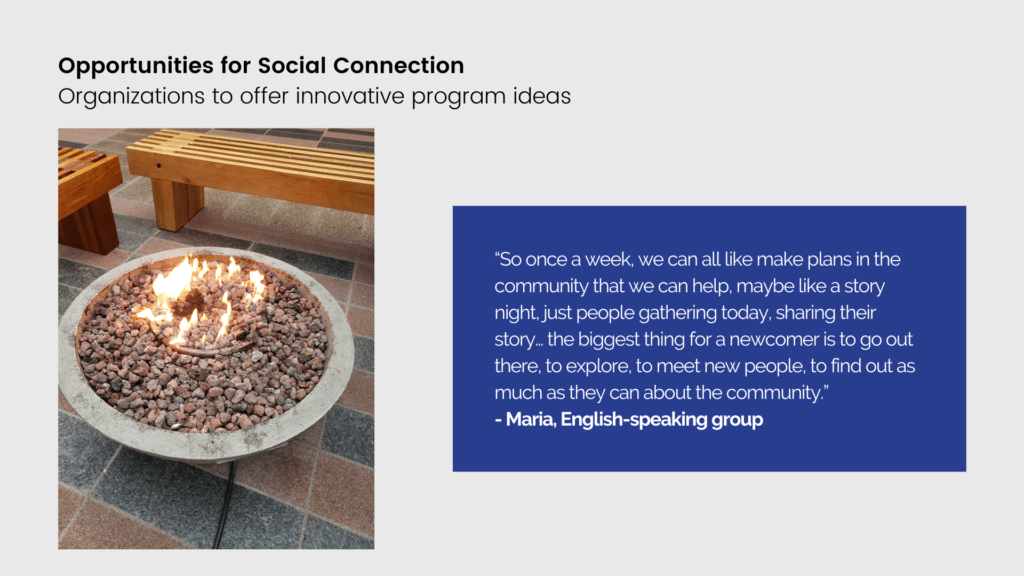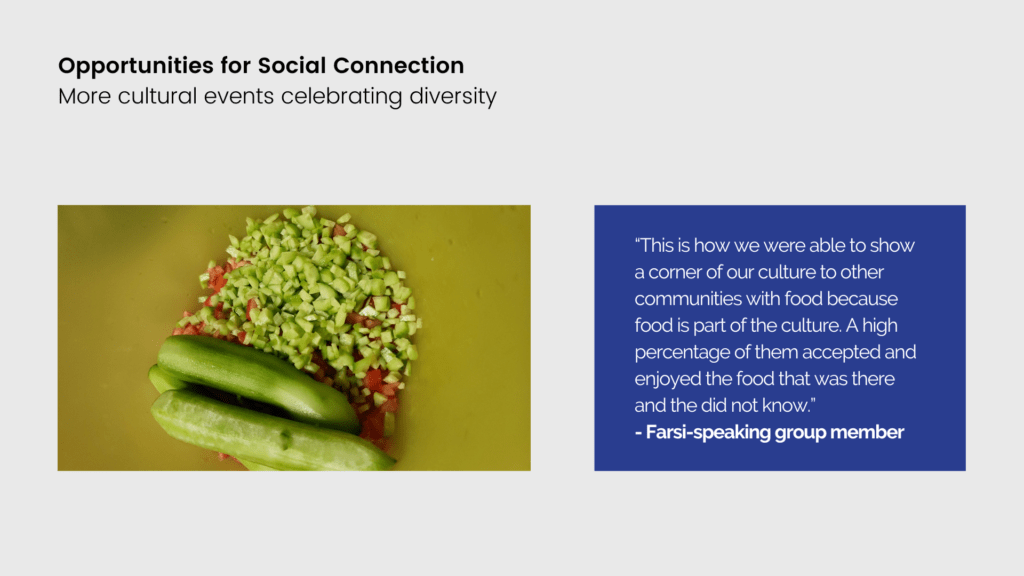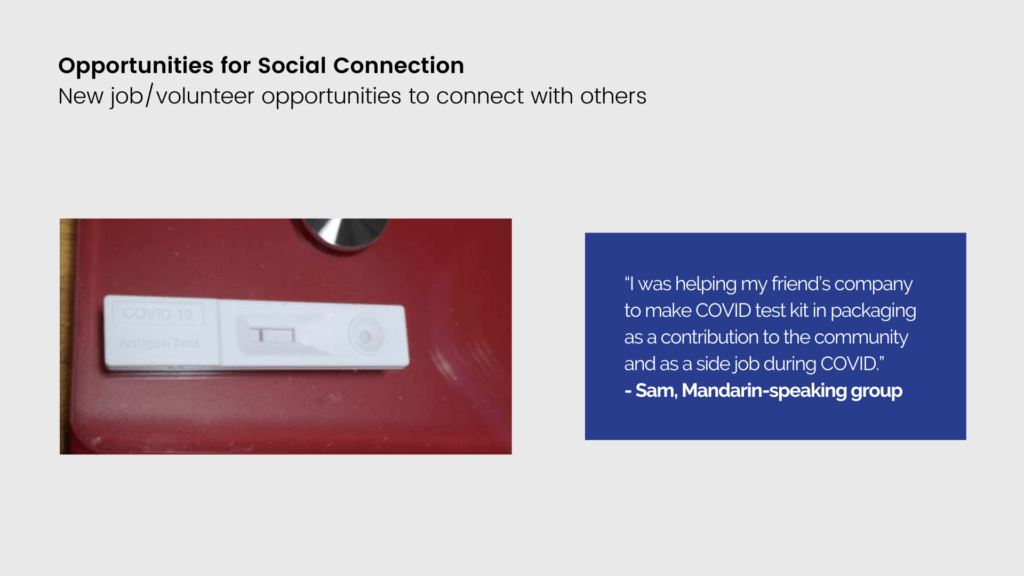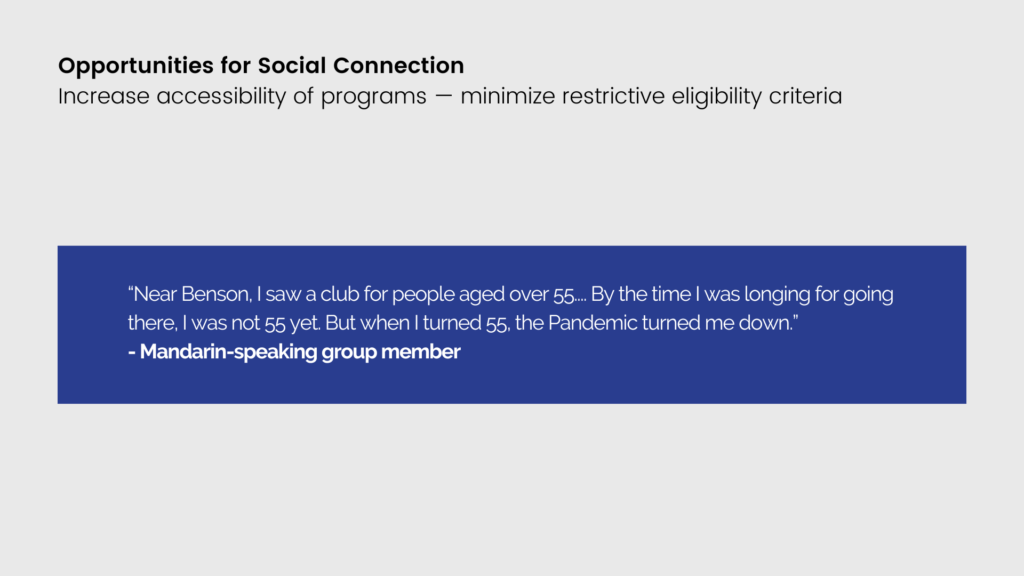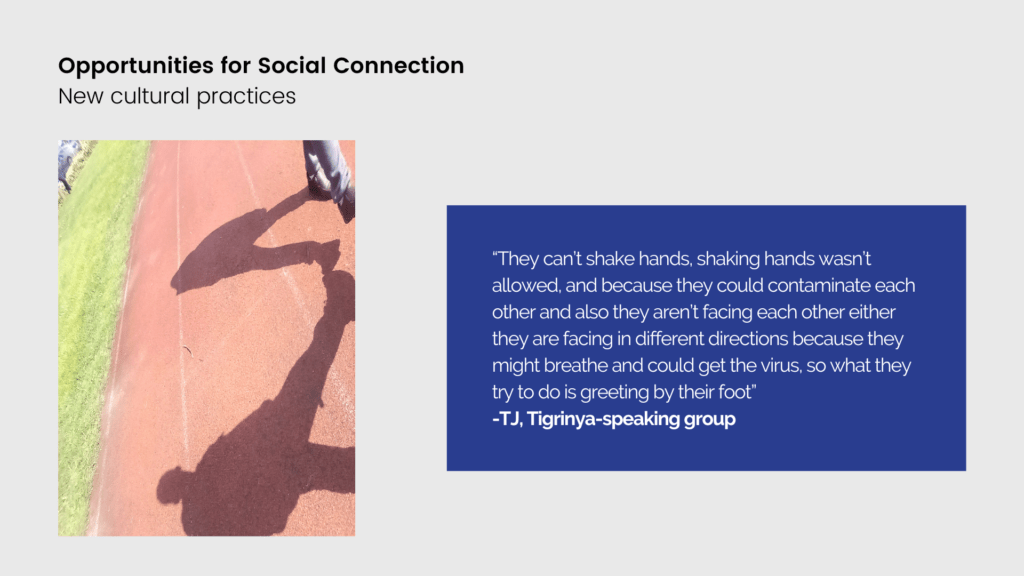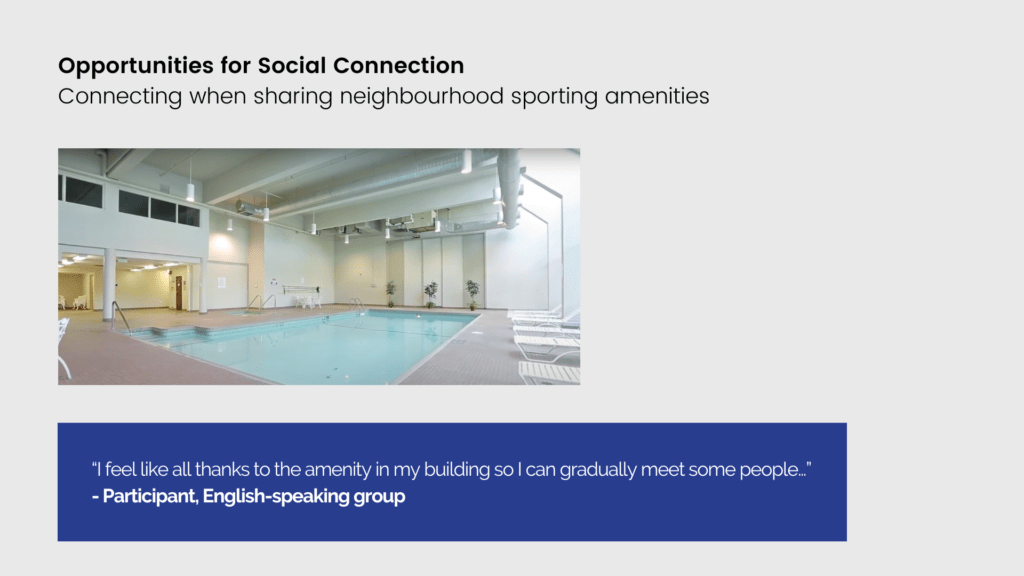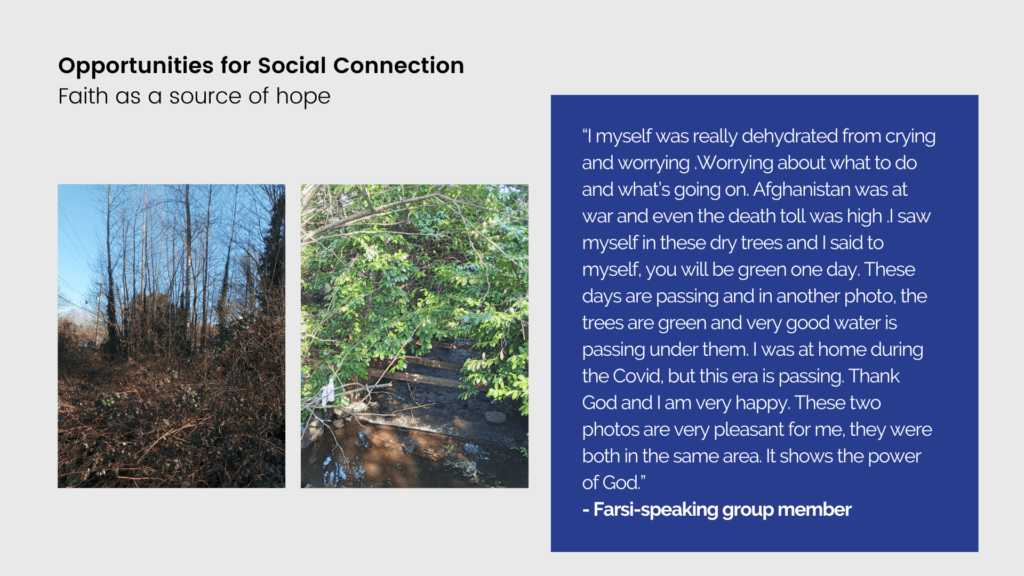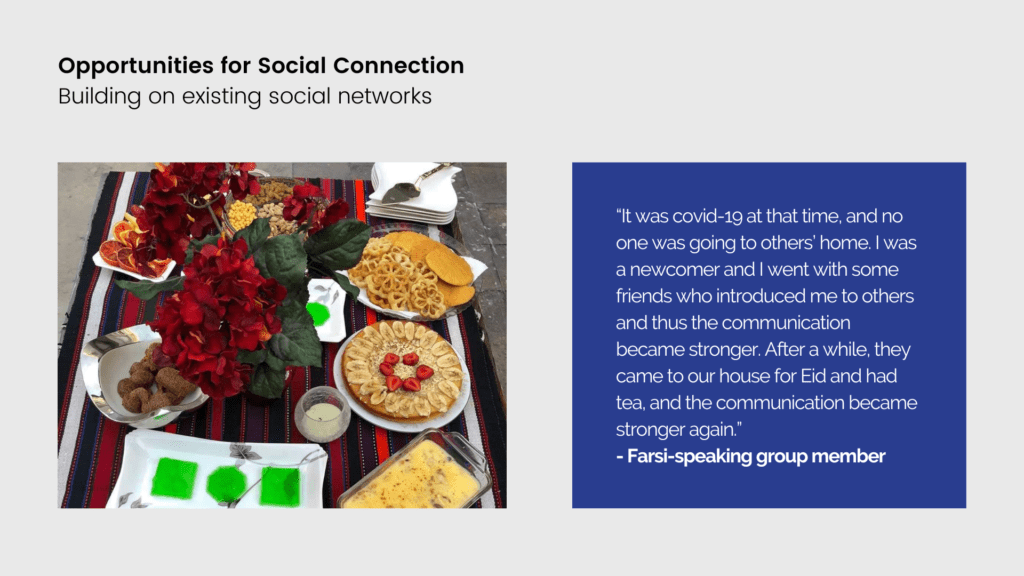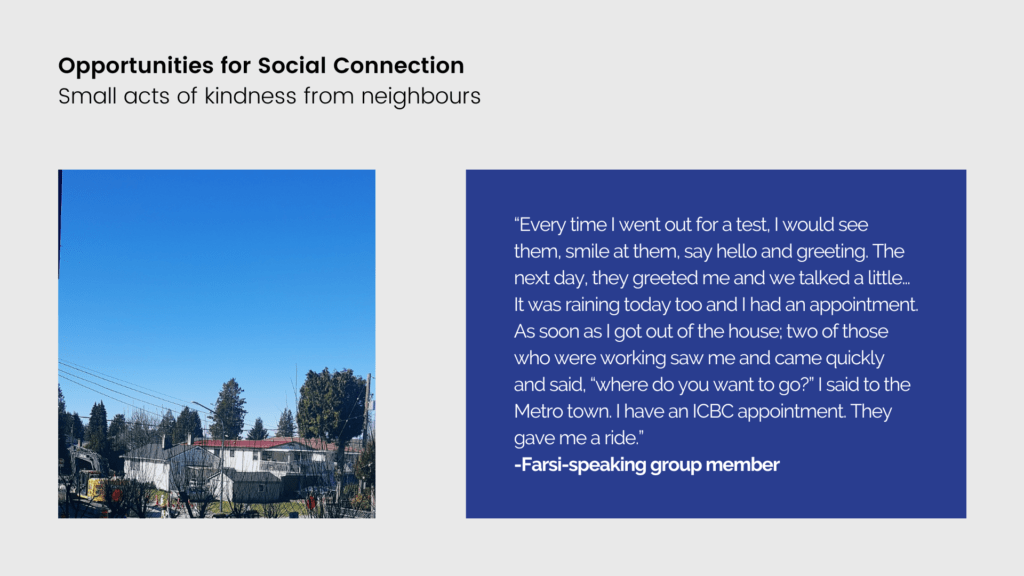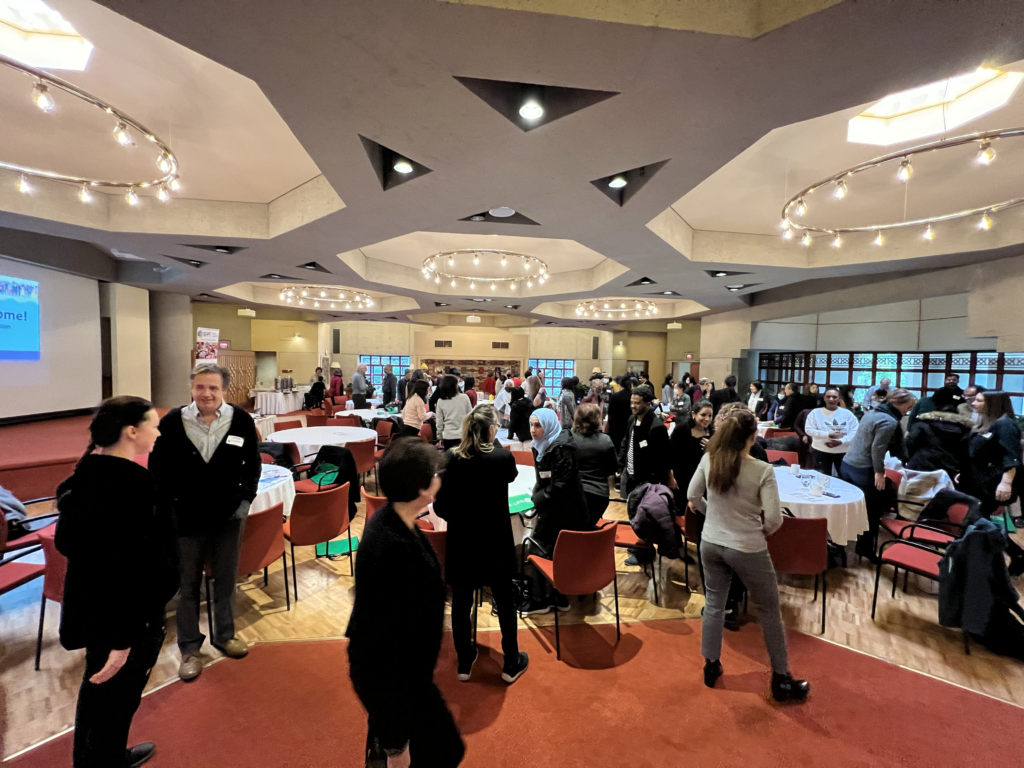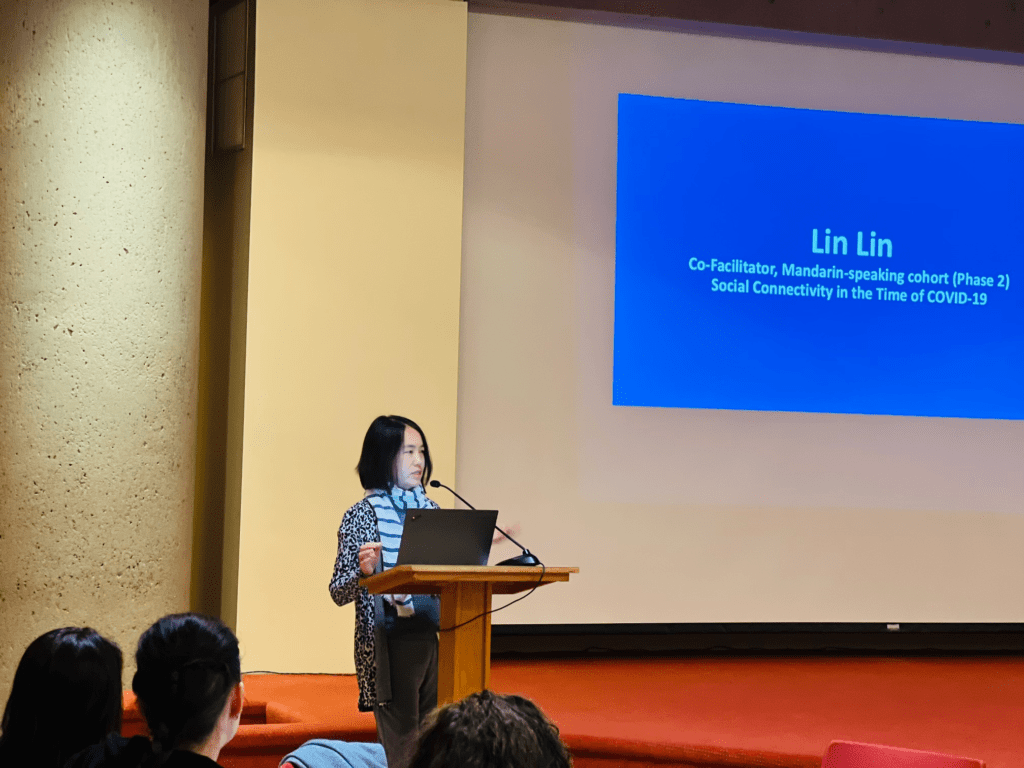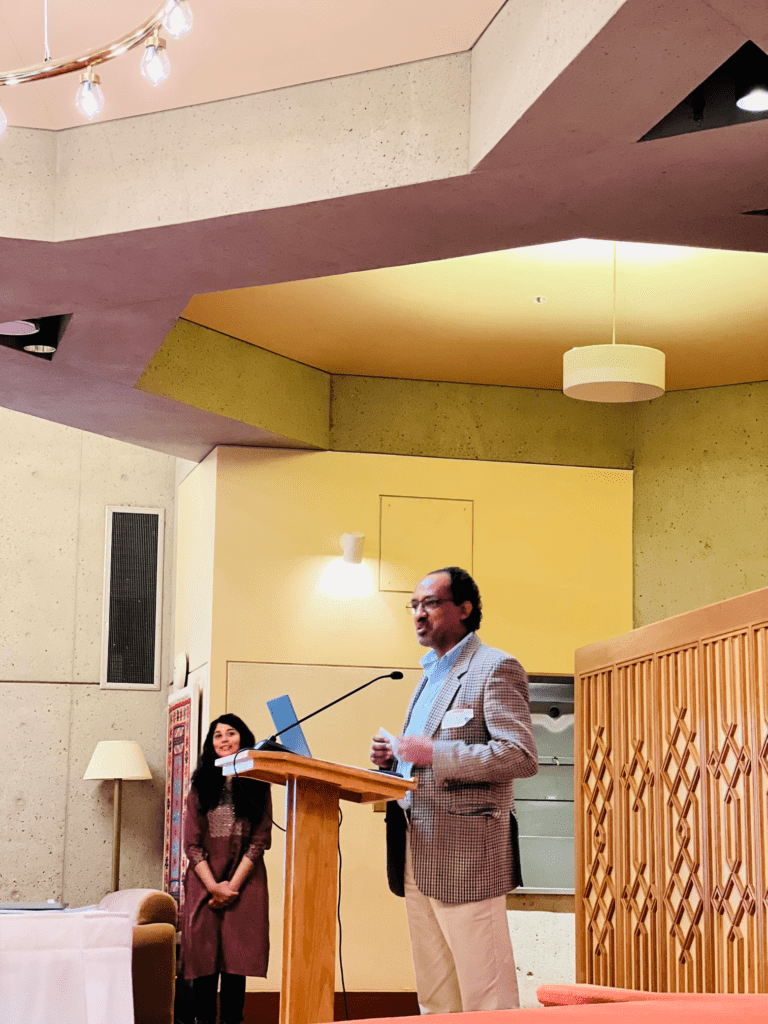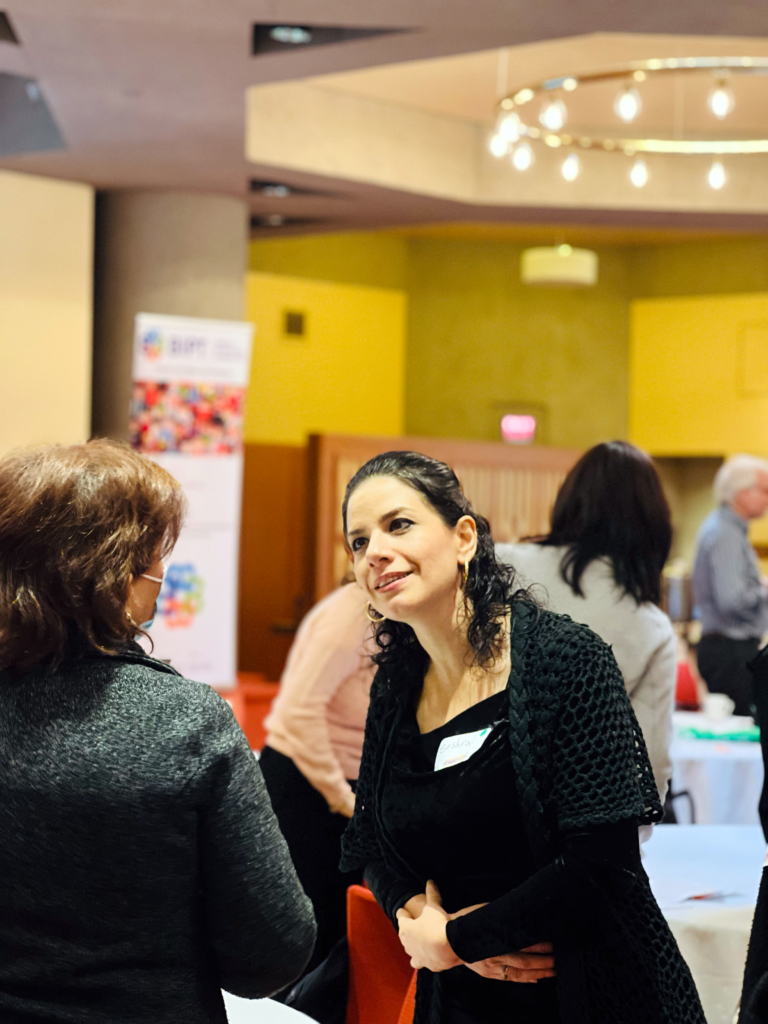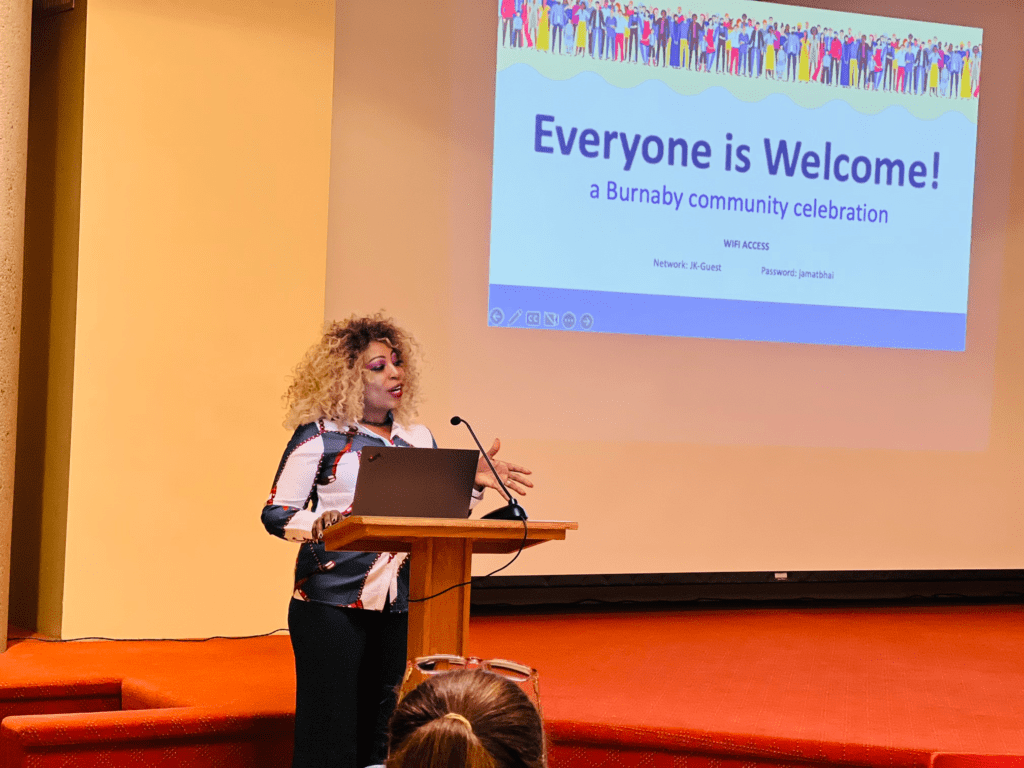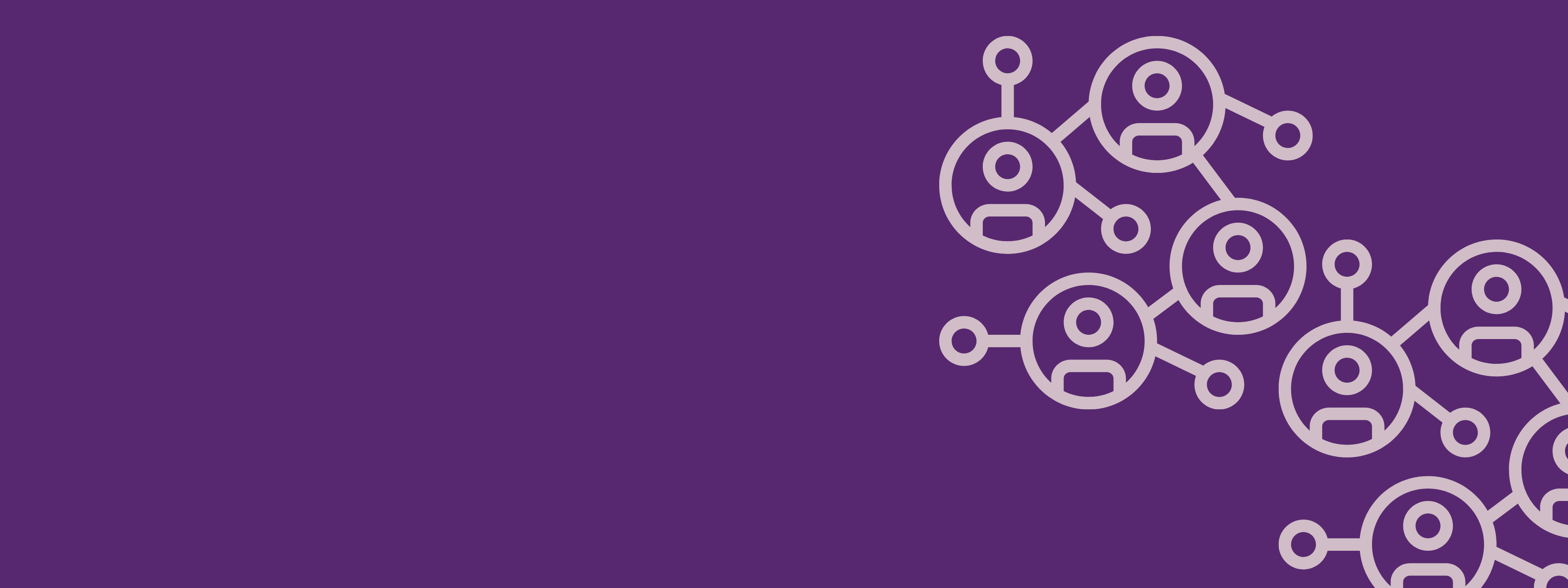
Social Connectivity
in Burnaby
Dengan menggunakan fotografi sebagai alat penelitian untuk memicu diskusi kelompok, para pendatang baru di Burnaby mengeksplorasi bagaimana COVID-19 telah memengaruhi hubungan sosial, dan peran yang dapat dilakukan oleh organisasi komunitas untuk membantu kita merasa lebih terhubung.
Kelompok Kerja Isolasi Sosial (SIWG) Burnaby PCN sedang melakukan penelitian berbasis komunitas, menyelidiki bagaimana meningkatkan konektivitas sosial di Burnaby selama pandemi COVID-19 dan seterusnya untuk memandu strategi kesehatan mental Burnaby.
The research is split into two phases with Phase 1 (Fall 2021) conducted in English and Phase 2 (Spring 2022) conducted in Tigrinya, Farsi, and Chinese to reach some of Burnaby’s most isolated individuals. The group sessions involved community members self-identifying as isolated recent newcomers of racialized communities, who shared their experiences of social isolation using Photovoice research methodology (a mix of photography and discussions).
Temuan penelitian ini memberikan wawasan kepada SIWG tentang bagaimana organisasi masyarakat Burnaby dapat mengatasi hambatan konektivitas dan bagaimana mereka dapat membangun peluang yang didiskusikan oleh anggota masyarakat untuk mendapatkan solusi yang inovatif dan berkelanjutan.
*For the best experience, consider viewing this page on a desktop device.
BACKGROUND
Social isolation can be described as the “disengagement from social ties, institutional connections, or community participation” (BCCDC, 2019) and is a known social determinant of health for many health conditions, including anxiety, depression, addiction, cardiovascular disease, diabetes and premature mortality.
Social isolation is linked to, but is different, from loneliness; social isolation is the objective separation from other people; whereas loneliness is the subjective distressed feeling of being alone as defined by the National Institute of Ageing.
Social connectivity is the opposite of social isolation; it is a sense of belonging to a group or community and is associated with having personal relationships and engagement with the broader community.
COVID-19 related restrictions have made social isolation worse for most, however, racialized newcomer communities may be made more vulnerable. Yet with all this knowledge, there is limited data on how community agencies can promote social connectivity!
Below are photos describing some of the recent experiences of social connectivity and social isolation that were experienced by participants.
Recent Experiences of Social Connection
| Recent Experience | English Group | Farsi Group | Mandarin Group | Tigrinya Group |
| Loss of day-to-day routine and hobbies | x | x | x | x |
| Using tech to connect with others | x | x | x | x |
| Quarantine; spending a lot more time indoors | x | x | x | x |
| Feeling unwanted; perceived unfriendliness from others | x | x | x | x |
| Feeling isolated in public spaces | x | x | x | |
| Homesickness | x | x | x | |
| Helplessness | x | x | x | |
| Stress and frustration | x | x | x | |
| Loneliness during the holidays | x | x | ||
| Time spent outdoors in nature as an escape | x | x | ||
| Using tech to work/study online | x | x |
Barriers to Social Connectivity
| Barrier | English Group | Farsi Group | Mandarin Group | Tigrinya Group |
| Fear of catching COVID-19 | x | x | x | x |
| Distance from family and/or core supports | x | x | x | x |
| Travel restrictions and cost | x | x | x | x |
| Feeling uncertain in a new cultural environment | x | x | x | |
| Perceived racism & public fear | x | x | x | |
| Language barriers | x | x | x | |
| Drawbacks of using tech | x | x | x | |
| Inconvenience of protective practices | x | x | x | |
| COVID-19 safety recommendations – impacts on child development | x | x | x | |
| Weather making it difficult to socialize outside | x | x | ||
| Poor mental health and/or lack of motivation | x | x | ||
| Competing priorities (e.g. school, work) | x | x | ||
| Cost of living | x | x | ||
| Lack of understanding/ hostility from social supports outside Canada | x | x | ||
| Closure of existing programming due to pandemic restrictions | x | x | ||
| Loss of employment | x | x |
Opportunities for Social Connectivity
| Opportunity | English Group | Farsi Group | Mandarin Group | Tigrinya Group |
| Increase awareness of existing programs | x | x | x | x |
| Leveraging tech to connect socially, and increase access to health and social services | x | x | x | x |
| Positive mindset | x | x | x | x |
| Nature as an escape | x | x | x | |
| Return to in-person programming with safety measures | x | x | x | |
| Language supports | x | x | x | |
| Offer innovative program ideas – e.g. that celebrate culture | x | x | ||
| Regular, continuous programming | x | x | ||
| Increase accessibility of programs; minimize restrictive eligibility criteria | x | x | ||
| New job/ volunteer opportunities | x | x | ||
| Talking about negative feelings with others | x | x | ||
| Small acts of kindness from neighbours | x | x |
COMMUNITY PRESENTATION
This project was presented at a community event on November 3, 2022, hosted as a partnership between Immigrant Services Society of BC, Burnaby Intercultural Planning Table, Burnaby Together: Coalition Against Racism & Hate, Burnaby Neighbourhood House, Burnaby Primary Care Networks, Burnaby Division of Family Practice, and Shared Care.
THANK YOU
We are thankful to all our many community members who spent their time sharing their experience and thoughts with our team.
We would also like to thank our partners, listed below:
Primary Funders:
Simon Fraser University – Community-Engaged Research Initiative (CERi)
Vancouver Foundation – Convene Grant


Community Partners (Burnaby Social Isolation Working Group):
Divisi Praktik Keluarga Burnaby
Kehidupan Keluarga Burnaby
Burnaby Intercultural Planning Table
Rumah Lingkungan Burnaby
Perpustakaan Umum Burnaby
Distrik Sekolah Burnaby
Burnaby Together – Coalition Against Racism & Hate
Fraser Health Authority
Immigrant Services Society of BC (ISSofBC)
MOSAIC
Pacific Immigration Resources Society
Tian-Jin Temple
United Way
YWCA Techlink
In-kind resources provided by:
Divisi Praktik Keluarga Burnaby
Jaringan Perawatan Primer Burnaby
Immigrant Services Society of BC (ISSofBC)
Rumah Lingkungan Burnaby
YWCA Techlink
OUR RESEARCH TEAM
Principal Investigator:
Dr. Surita Parashar
Research Advisor:
Anna Vorobyova
Lead Researchers:
Azra Bhanji (abhanji@burnabydivision.ca)
Catherine Trudeau
Phase 1 Co-facilitators:
Azra Bhanji (English)
Catherine Trudeau (English)
Dhanashree Sangaokar (English)
Phase 2 Co-facilitators & Translators:
Binega Markos (Tigrinya)
Isaias Moges (Tigrinya translator)
John Tesfamichael (Tigrinya)
Lena Nobakht (Farsi)
Lin Lin (Mandarin)
Shayan Abbaszadeh (Farsi)
Shokouh Farshidfar (Farsi)
Sunny Yang (Mandarin)
Yodit Habte (Tigrinya translator)
PCN Community Engagement Coordinator:
Andrea Creamer
Key Community Lead:
Thea-Lynne Fiddick
Community Consultants:
Ana Maria Bustamante
Gisela Briceno
Gulalai Habib
Margaret Manifold
Melody Monro
Pilar Sain
Sangeeta Bhonsale
Veronica De Jong
